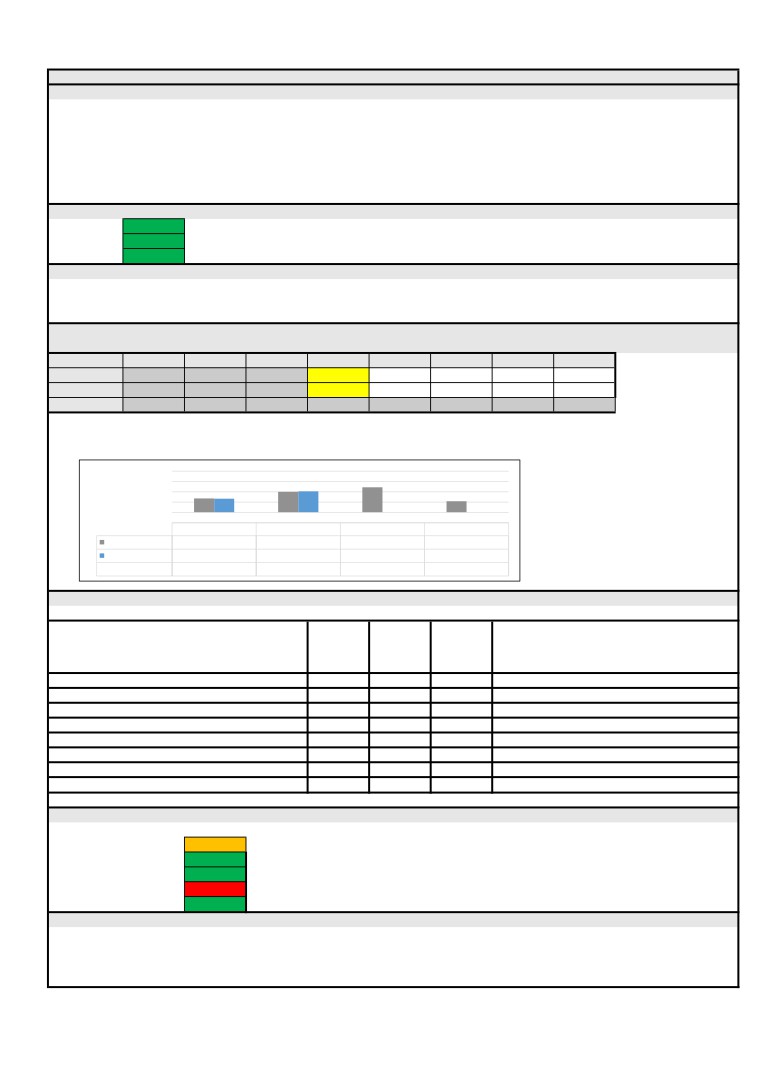New Anglia Local Enterprise Partnership Board Meeting
Wednesday 30th January 2019
10.00am to 12.30pm
The Seminar Room, The Ipswich Waterfront, Innovation
Centre, University of Suffolk, Ipswich, IP4 1QJ
Agenda
No.
Item
Duration
20 mins
1.
Welcome from the Chair
2.
Apologies
3
Welcome from University of Suffolk Vice-Chancellor
4.
Declarations of Interest
5
Actions / Minutes from the last meeting
Forward Looking
60 mins
6.
Aims and Objectives for the Year
Presentation
7
Place Branding
Update
8.
Brexit
Update
Break
10 mins
Governance and Delivery
60 mins
9.
New Anglia LEP Diversity Champion
For Approval
10.
Election of Deputy Chair
For Approval
11.
Amendments to Committee Terms of Reference
For Approval
12.
Chief Executive’s Report
Update
13.
January Performance Reports including Confidential Reports
Update
14.
Finance Report including Confidential Appendices
Update
15.
Board Forward Plan
Update
16.
Any Other Business
17.
Remuneration Committee Update
Update
Next Meeting: 10.00am - 12.30pm, 27th February 2019
Venue: The Ideas Factory, Cavendish House, St Andrews St, Norwich NR2 4AEV
1
New Anglia Board Meeting Minutes (Unconfirmed)
21st November 2018
Present:
David Ellesmere (DE)
Ipswich Borough Council
Doug Field (DF)
East of England Coop
Matthew Hicks (MH)
Suffolk County Council
Dominic Keen (DK)
High Growth Robotics
William Nunn (WN)
Breckland District Council
Steve Oliver (SO)
MLM Group
Andrew Proctor (AP)
Norfolk County Council
Johnathan Reynolds (JR)
Nautilus
Lindsey Rix (LR)
Aviva
Sandy Ruddock (SR)
Scarlett & Mustard
Nikos Savvas (NS)
West Suffolk College
Tim Whitley (TW)
BT
Jeanette Wheeler (JW)
Birketts
Attendees
Gail Harris
Norwich City Council (For Alan Waters)
Vince Muspratt (VM)
Norfolk County Council
Sue Roper (SuR)
Suffolk County Council
Chris Dashper (CD)
New Anglia LEP (For Items 8)
Ellen Goodwin (EG)
New Anglia LEP (For Item 5)
Chris Starkie (CS)
New Anglia LEP
Rosanne Wijnberg (RW)
New Anglia LEP
Helen Wilton (HW)
New Anglia LEP
1
3
Actions from the meeting: (21.11.18)
Infrastructure
For the LEP team to ensure that links are progressed with other sub-national transport bodies
EG
Performance Reports
To receive clarification on the Dashboard outputs and RAG status
RW
Finance Report
To receive further detail on the receipt of loan repayments and interest receipts
RW
AOB
A summary of achievements to be circulated to Board members to assist with promotion of
NS
educational achievements
1
Welcome from the Chair
Doug Field (DF) welcomed everyone to the meeting including Gail Harris who was deputising for
Alan Waters.
2
Apologies
Apologies were received from Alan Waters, David Richardson and John Griffiths.
3
Declarations of Interest
None
4
Minutes of the last meeting 18th October 2018
The minutes were accepted as a true record of the meeting held on 18th October 2018.
5
Infrastructure
Ellen Goodwin (EG), Infrastructure Manager for the LEP, provided the meeting with an
update on the infrastructure strategy and ongoing delivery highlighting the fact that
infrastructure improvements are critical to achieving the ambitions of the Norfolk and Suffolk
Economic Strategy.
The meeting discussed the importance of linking with and influencing the work of other key
sub-national transport bodies such as England’s Economic Heartland given that their
priorities will not always be the same.
Matthew Hicks (MH) advised that Norfolk, Suffolk & Essex had been invited to join
England’s Economic Heartland and had chosen to have observer status at this stage with 2
places on the body with the option to join in full at a later date.
Jeanette Wheeler (JW) noted the importance of infrastructure to businesses when
considering relocation to the area and proposed highlighting the main infrastructure projects
on the web site.
Steve Oliver (SO) asked for an update on the major bridge building projects in Suffolk.
MH advised that the Lowestoft bridge was proceeding as planned however the Orwell
Crossings currently faced a £43m shortfall which the Council is unable to fill. Discussions
are ongoing with Government to address this with a decision to be taken by the end of
December.
SO noted that, if the project did not continue, then a clear communications strategy would
be required given the LEP’s £2m investment.
Tim Whitley (TW) asked if links had been set up to connect Felixstowe port with other
national areas such as the Northern Powerhouse who rely on the ports for receiving goods
from Europe.
EG advised that New Anglia LEP had convened a LEP Network Ports & Logistic Group to
look at wider ports issues collectively.
2
4
Johnathan Reynolds (JR) noted the national significance of the energy infrastructure in the
region and the importance of emphasising this.
David Ellesmere (DE) suggested producing high level details of the LEP’s delivery
objectives.
The Board agreed:
To note the content of the presentation
To receive a regular high-level summary of projects by theme including next steps and
EG
objectives.
For the LEP team to ensure that links are progressed with other sub-national transport
EG
bodies
6
Tier 2 Review
Chris Starkie (CS) reviewed the work carried out to date as part of the Tier 2 Review and the
proposals relating to the advisory boards covering transport, skills, innovation, inward
investment and sectors.
The recommendations are detailed as follows:
Skills Board - For the LEP Board to endorse the continuation of the LEP Skills Board in its
current form and its terms of reference to be amended to bring it into line with the main
Board.
Local Transport Body and Local Transport Board - To amalgamate the Local Transport
Body and Board into a single forum, the Transport Implementation Group, which will focus
on implementing the Norfolk and Suffolk Integrated Transport Strategy.
Further work will be carried out to determine the required composition, membership and
name of this group and produce appropriate Terms of Reference, ensuring it aligns with
other bodies in the second tier Governance review.
New Anglia LEP Innovation Board - For the LEP Board to endorse the continuation of the
Innovation Board in its current form and for a review into its Terms of Reference,
membership and outputs to be carried out.
International and Inward Investment Sub-Group - For a review of the aims, objectives
and terms of reference of the International and Inward Investment Sub-group to be carried
out.
Sector Groups - Given the range of approaches across the sector boards it is
recommended to standardise the approach and develop common TOR for a group which
focusses on the leadership and promotion of the sector and improves accountability to the
LEP Board.
Where the group is part of a membership organisation, this will mean creating a separate
sector group to focus on the leadership and coordination of the sector.
MH asked for reporting back from the other Boards to be built into the Board Forward plan
providing regular reporting to the LEP Board.
The meeting discussed the complexities of the various sub-groups and the issues faced in
ensuring that they were aligned.
The Board agreed:
To note the contents of the paper.
To accept the recommendations as detailed above.
To receive a future paper from both the Innovation Board and the International and
Inward Investment Sub-Group following the review their own TORs
To require LEP sector groups to develop common Terms of Reference focusing on
the leadership and promotion of the sector
3
5
That sector groups need their own governance distinct from membership bodies
To receive regular reports from all Sector groups
7
LEP Board Governance
CS presented the paper proposing the process for the appointment of the deputy chair in
order to comply with the LEP Review requirements.
CS confirmed that Government had confirmed that the deputy chair must be from the private
sector which now included Board members from the Education sector although anyone
deputising for these Board members would not be able to act deputy chair.
The Board agreed:
To note the contents of the paper
To adopt the process for the appointment of the deputy chair
8
Enterprise Zone Accelerator Project - Confidential
9
Brexit
CS reviewed the paper detailing the ongoing work on Brexit which is currently focussing on
delivering intelligence to businesses.
CS noted that Brexit is not currently being raised to the Growth Hub as a key issue therefore
SMEs will be contacted proactively to ascertain their concerns.
JW advised that there was a lot of anecdotal evidence which needed to be captured as part
of the questionnaire.
It was clarified that the LEP was signposting to information collated by a wide variety of
organisations and was not providing advice to businesses as this is a specialist field.
The Board agreed:
To note the content of the report
10
Chief Executive’s Report
CS presented his report to the Board and asked for questions.
CS confirmed that the Annual LEP Performance Review was taking place in January and
preparatory work was ongoing. Declarations of Interest had been issued for review and CS
asked Board Members to return them as soon as possible in order for them to be updated
on the web site.
Board members were advised that the National Assurance Framework had been received
and the LEP team are working to ensure everything is in place by the end of March.
Engagement with individual businesses - confidential
4
6
The Board agreed:
To note the content of the report
11
November Programme Performance Reports
RW presented the report included in the meeting pack and advised that Johnathan Rudd
had been appointed as the Growth Deal Manager.
The Board was advised that to date 30 enquiries have been received for the latest capital
projects call which would usually result in approximately 15 applications. Appraisals will
take place following the closure of the call in January.
LR asked whether the rating of green on the Government dashboard was correct given the
outputs achieved to date. RW advised that the outputs would be realised in stages and not
in a smooth delivery therefore the status reflected the expectation of future deliveries.
The meeting discusses this further and agreed that the figures did not appear to reflect the
RAG status allocated.
RW advised that the Economic Dashboards use proxy indicators and provided an overview
of the trends and outputs.
CS stated that the delay to achieving the Housing outputs would be resolved when the
Winerack was delivered.
CD noted that there was a difference in outputs between the LEP dashboard and the
Government one as the Government does not recognise indirect outputs.
DF suggested adding comments which would provide details of key projects which would
lead to the delivery of the targets and therefore reflect the Green rating.
The Board agreed:
To note the content of the reports
To receive clarification on the Dashboard outputs and RAG status. Once received
RW
approve the submission of the Government Dashboard
To add commentary on future reports
12
Finance Report
RW reviewed the finance report and detailed any key variances.
LR asked where loan repayments would appear in the accounts provided. CS advised that
they would not be in this Profit and Loss statement as this was the LEP’s operational
budget..
The meeting discussed the visibility of interest receipts and loan payments asked for
clarification on the reporting of such items.
The Board agreed:
To note the content of the report
To receive further detail on the receipt of loan repayments and interest receipts
RW
13
Board Forward Plan
CS reviewed the Forward Plan and asked for suggestions for agenda items from the Board.
The Board agreed:
To note the content of the plan
14
Any Other Business
Nikos Savvas (NS) - advised that Suffolk One has been rated as BTEC College of the year,
has repaid its debts and is now full and is rated as 3rd among collages across the county.
NS also advised that Apple would be visiting the region and are interested in participating in
the Festival of Learning.
5
7
Action: A summary of these ratings is to be circulated to Board members to assist with
promoting the achievements - NS
Next meeting:
Date and time of next meeting:
10.00am - 12.30pm, 30th January 2019
Venue: The Seminar Room, The Innovation Centre, University of Suffolk, Ipswich, IP4 1QJ
6
8
Actions from New Anglia LEP Board Meetings
Date
Item
Action
Update
Actioned By
Status
23/11/2018
Infrastructure
For the LEP team to ensure that links are progressed with other sub-
Ongoing
EG
On-Going
national transport bodies
23/11/2018
Performance Reports
To receive clarification on the Dashboard outputs and RAG status
Clarification has beenissued to Board members
RW
Complete
23/11/2018
Finance Report
To receive further detail on the receipt of loan repayments and interest
After discussion with Lindsey Rix further consideration
RW
On-Going
receipts
will be given to providing a briefing session to Board
members on 2019/20 funding.
21/02/2018
Economic Indicator
To receive a paper on CO2 reductions for
Work is ongoing in conjunction with the UEA
CS/JR
On-Going
Trajectories and Targets:
consideration of inclusion in the economic strategy targets
New Anglia Local Enterprise Partnership
Board Decision Log - Public
Date
Decision
Decision Made
Making Body*
05/12/2018
Growing
The Panel approved the following applications:
Business Fund
• Spectra Packaging Limited - Agreed to support
Panel
Approved Grant: £74,486 under De Minimis
• Stephen Walters & Sons Limited - Agreed to support
Approved Grant: £118,049 under De Minimis
21/11/2018
LEP Board
The Board Made the following decisions:
Tier 2 Review
To accept the recommendations as detailed above.
To receive a future paper from both the Innovation Board and the International and Inward Investment Sub-Group following the review their
own TORs
To require LEP sector groups to develop common Terms of Reference focusing on the leadership and promotion of the sector
That sector groups need their own governance distinct from membership bodies
To receive regular reports from all Sector groups
LEP Board Governance
To adopt the process for the appointment of the deputy chair
Enterprise Zone Accelerator Project - Confidential
November Programme Performance Reports
To receive clarification on the Dashboard outputs and RAG status. Once received approve the submission of the Government Dashboard
To add commentary on future reports
Finance Report
To receive further detail on the receipt of loan repayments and interest receipts
21/11/2018
Investment
The IAC made the following decisions:
Appraisal
Hawk and Owl Trust Growing Places Fund grant request- Confidential
Committee
Southwold Hospital Growing Places Fund grant request- Confidential
Alchemie Growing Places Fund loan request- Confidential
13/11/2018
Investment
The IAC made the following decisions:
Appraisal
Nar Ouse Enterprise Zone Investment - Confidential
Committee
MSF Growing Places Fund request - Confidential
07/11/2018
Growing
The Panel approved the following applications:
Business Fund
Condimentum Limited - Agreed to support
Panel
Approved Grant: £391,350
Optima Stainless Limited (considered and approved by email in October)
Agreed to support
Approved Grant: £265,300 amended to £264,900
Fourteen full-time jobs to be created.
18/10/2018
LEP Board
The Board Made the following decisions:
LEP Review
* New Anglia Local Enterprise Partnership Board, Investment Appraisal Committee, Growing Business Fund Panel, Remuneration Committee, Audit & Risk Committee
To maintain its existing approach to the recruitment of its chair.
To appoint a deputy chair by February 28th 2019.
To amend the LEP’s articles of association to class education members as private sector.
To amend the LEP’s articles of association to increase the number of private sector board members to 12.
To amend the articles of association to allow education sector board members to send deputies to board meetings
To work towards increasing the female representation amongst private sector board members
Capital Growth Programme Call
To approve the launch of a focused call on Skills, Innovation and Productivity, to allocate the remaining £19m of the Capital Growth Programme
Innovative Projects Call
To approve the specification and launch of a call for innovative growth projects to be supported through EZ Pot C income
To approve the eligibility framework
Eastern Agritech Report
To approve the continuation of the programme in partnership with the Cambridge and Peterborough Combined Authority, providing a financial
contribution of £1m towards the programme in 2018/19 under the terms laid out in the report
18/10/2018
Investment
The IAC made the following decisions:
Appraisal
Albert Bartlett Growing Business Fund Grant Request - Confidential
Committee
MSF Growing Places Fund bridging loan request - Confidential
Nar Ouse Enterprise Zone Investment - Confidential
19/09/2018
LEP Board
The Board Made the following decisions:
Economic Strategy Delivery Plan
To adopt the concept of developing Game Changers.
That the ESDCB should also coordinate development of the Local Industrial Strategy
Local Industrial Strategy
To agree the approach to developing the Local Industrial Strategy
LEP Review
To agree the LEP submission on geography
Programme Performance Reporting
To approve the reporting cycle with the inclusion of NAC
To approve the reporting template
September Programme Performance Reports
To approve the Growth Deal Quarterly Dashboard
19/09/2018
Investment
The IAC made the following decisions:
Appraisal
Capital Growth Programme Autumn Call
Committee
To recommend to the LEP Board that the recommendations in the paper should be supported and the call launched after the October LEP
board meeting
Revenue Budget Framework
To recommend to the LEP Board that the recommendations in the revenue paper should be supported and the call launched after the
October LEP board meeting
06/09/2018
Investment
The IAC made the following decisions:
Appraisal
Rouen House Grant Variation - Confidential
Committee
05/09/2018
Growing
The Panel approved the following applications:
Business Fund
• Zedbox UK Limited - Agreed to support
Panel
Approved Grant: £120,000
* New Anglia Local Enterprise Partnership Board, Investment Appraisal Committee, Growing Business Fund Panel, Remuneration Committee, Audit & Risk Committee
New Anglia Local Enterprise Partnership Board
Wednesday 30th January 2019
Agenda Item 8
Brexit
Author: James Allen Presenter: Chris Starkie
Summary
The LEP’s role in assisting businesses pre- and post-Brexit covers four headings.
1 Providing Brexit intelligence to Government.
2 Providing information to businesses on changes brought about by Brexit.
3 Work to shape the future funding landscape for business support.
4 Identify changes to LEP and other programmes to react to opportunities and threats posed by
Brexit.
The Board will be updated on progress and proposed actions in each of these headings.
This report focuses on providing intelligence to government and information to businesses.
Recommendation
The Board is asked to note the contents of the report
Background
As we near the official date for the UK’s departure from the EU (29th March 2019), the LEP has
set out its proposed role as follows:
1 Assisting businesses through Brexit by ensuring government understands the opportunities
and challenges faced by businesses across Norfolk and Suffolk.
2 Providing those businesses with useful information regarding how they can prepare for Brexit
and what they can be doing to Brexit-proof their business for the coming years.
3 Lobbying for the future funding landscape to be fit for purpose post-Brexit.
4 Ensuring that LEP programmes react to the opportunities and challenges posed by Brexit.
Providing businesses with useful information on preparing for Brexit
from government and business intermediaries to assist businesses in their preparations for a
‘no deal’ Brexit. This webpage is identical on both the LEP and the Growth Hub’s websites.
checklists and practical guides.
As we receive intelligence from Government that may be helpful for the business community,
we will update the webpage so that businesses can access the latest information. This
1
webpage also includes a section for businesses to provide the LEP with intelligence on
potential impacts of Brexit.
Providing Brexit intelligence to Government
The LEP has been gathering intelligence on the potential impacts of Brexit upon businesses in
Norfolk and Suffolk since the outcome of the referendum.
This has been sourced in a variety of ways, including interactions with businesses; meetings
with business intermediaries; attending regional events; local news; and engagement with local
districts and County Councils (through the Norfolk Sounding Board and Suffolk Taskforce).
The LEP has shared the key themes that have emerged from this intelligence with central
government to ensure that the potential impacts are well understood.
Since the last board meeting, both the LEP and Growth Hub have been asked to provide
weekly updates on Brexit intelligence from the business community to central government.
LEP chief executives are now taking part in weekly Brexit calls with central Government
officials.
Some of the high-level issues that have emerged to date include the ability to recruit high-,
medium- and low-skilled employees; exchange rate fluctuations and the impact on purchasing
stock / business investments; supply chain impacts; and the future of funding.
Detailed Brexit intelligence includes:
The Port of Felixstowe and Danish ferry operator DFDS have agreed to increase roll-on/roll-off
(ro/ro) capacity at the port by over 40%. This investment is driven by their long-term confidence
in the ro/ro route between Felixstowe and Rotterdam and increasing interest in both ro/ro and
short sea container connections as shippers seek to minimise risks to their supply chains
resulting from Brexit.
Some logistics providers such as Century Logistics are seeing a dramatic expansion and rise in
demand for warehouse space at the moment due in part to Brexit stockpiling. We are aware of
a number of local businesses that are stockpiling or have plans to stockpile ahead of the 29th
March.
Both the NFU East Anglia and Country Land and Business Association East have highlighted
the damaging impact that uncertainty has led to for business confidence and investment
decisions throughout the food and farming industry.
The region has already seen a reduction in the number of migrant workers coming to work,
which has a knock-on impact for key industries such as agriculture, hospitality, construction and
healthcare.
A local solicitors firm has indicated that the local mergers and acquisitions pipeline has stalled
for companies likely to be impacted by Brexit.
In addition the Growth Hub is surveying businesses with the following questions set by
Government:
1. How do you think the UK leaving the EU is going to impact your business/organisation?
Will this be a positive or negative impact?
2. What are your top five priorities regarding your business right now?
3. Do you have any concerns regarding the UK leaving the EU in relation to your business
operations? If so, what are these?
2
4. Are you undertaking any activities to prepare your business for EU exit? If so, what are
these? If not, please explain why?
5. What are the upcoming issues/challenges your business is facing (i.e. looking to the
short, medium and long term)?
6. What are the barriers/ blockers to progress faced by your business/organisation right
now?
7. Where would you look for business advice regarding the UK leaving the EU?
8. Through what avenues/ in what formats would you find advice regarding Brexit most
useful? (e.g. tools, questionnaires, articles, videos, telephone hotline, face-to-face help
etc.)
9. Any other local intelligence that you think will be helpful to BEIS.
As we near 29th March 2019 and the rules around the future UK-EU relationship become
clearer, the LEP will look to become even more proactive around business support.
In addition to an up to date webpage for businesses to access and an assessment of LEP
programmes, the Growth Hub will look to run workshops across the region to support
businesses in their Brexit-readiness.
Recommendation
The Board is asked to note the contents of the report
3
New Anglia Local Enterprise Partnership Board
Wednesday 30th January 2019
Agenda Item 9
New Anglia LEP Diversity Champion
Author: Chris Starkie
Summary
Following the LEP Review all LEPs are being encouraged by Government to appoint diversity
champions to support the implementation of the LEP’s diversity statement.
Recommendation
The board is invited to appoint David Ellesmere as the LEP board diversity champion.
The board is further invited to agree that the role of the board diversity champion will be to
review the current policy and present an annual report on the progress of the LEP in
encouraging diversity and how improvements can be made.
Background
One of the key strands of the Government’s Review of LEPs was the issue of diversity.
The Government’s new National Assurance Framework, which takes effect from April 1st 2019,
instructs all LEPs set out their commitment to diversity in their own Local Assurance
Frameworks.
As part of this the LEP should produce a diversity statement explaining how the LEP will ensure
representation at board and sub-board level which is reflective of the local business community
(including geographies, gender and protected characteristics).
The statement should also set out how the LEP will monitor diversity at board level and explain
what steps the LEP is taking to ensure diversity in its engagement with local communities and
local businesses.
The diversity statement should include a commitment to ensure that by 2020 at least one third
of members of LEP boards are women with an expectation for equal representation by 2023.
It is also seen as best practice for a report to be made to the LEP board each year discussing
progress in encouraging diversity and how improvements can be made.
In addition, it is seen as best practice by Government for each LEP to nominate a diversity
champion from its board. Their role will be to encourage diversity and ensure that the LEP is
acting in line with its diversity statement.
1
17
Key issues
New Anglia LEP already has a diversity statement, attached as Appendix 1.
In addition, the LEP has accepted the LEP Review regarding female representation on its
board.
In order to meet the board gender commitment, the LEP is taking proactive steps to encourage
more female applicants for positions on the board and sub-groups. This has included promoting
the recent board vacancies to women’s business groups in Norfolk and Suffolk as well as
highlighting our aim in our advertisements.
Further the LEP chairman has written to all local authority leaders highlighting the ambition, as
local authorities are responsible for selecting their membership of the board.
In order to maintain focus on the issue of diversity, it is proposed to appoint a board member as
diversity champion.
The individual will help review the current diversity policy and bring it back to the board for
review as part of the development of our new Local Assurance Framework. The new LAF
needs to be in place by April 1st, so is due to be signed off at the March board.
In addition the board diversity champion will present a report to the LEP at a time to be agreed
discussing progress in encouraging diversity and how improvements can be made.
Following a number of discussions between the LEP chief executive, chairman and board
members it is proposed that David Ellesmere is appointed LEP diversity champion.
Recommendation
The board is invited to appoint David Ellesmere as the LEP board diversity champion.
The board is further invited to agree that the role of the board diversity champion will be to
review the current policy and present an annual report on the progress of the LEP in
encouraging diversity and how improvements can be made.
2
18
Equal Opportunities and Diversity Policy
Updated November 2018
Introduction
This policy sets out New Anglia’s commitment to equality and diversity.
Equality is enabling opportunity, access, participation and contribution on a fair and equal
footing and ensuring that different groups are not disadvantaged when accessing services,
employment or participating in public life in the New Anglia area. Diversity is about the
individual, understanding that each of us is different and making sure we respect and
celebrate the variety of backgrounds, perspectives, values, and beliefs.
Diversity and equality issues impact everyone in the New Anglia area and we are committed
to removing barriers that might restrict people and we are proactively working towards
positive change.
Policy Aims
This policy aims to:
• ensure the LEP is clear about equal opportunity and that these are managed in a
professional and lawful way
• set out the procedures the LEP will implement in relation to equal opportunities
management.
Our Policy
Equality and diversity considerations underpin all activities within the LEP. This includes
recruitment and selection, pay and benefits and training and development.
The core purpose of this policy is to eliminate discrimination (definitions appear later in this
policy) in employment and to promote equality of opportunity in employment. In doing so,
the LEP is respectful of differences and embracing of the opportunities that diversity offers.
The Equality Act 2010 makes it unlawful to discriminate against people with a ‘protected
characteristic’. This extends to direct or indirect discrimination in terms of:
• age
• disability (including mental health)
• gender reassignment
• marriage and civil partnership
• pregnancy and maternity
• race (including ethnic origin, colour, nationality or national origin)
• religion or belief (including philosophical belief)
• sex
• sexual orientation
• trade union membership.
All employees at all levels are encouraged to act fairly and prevent discrimination. The LEP
actively encourages the employment, promotion and training of employees and potential
employees from all sectors of the community and values the different skills, ideas and
opinions that a diverse workforce can offer.
November 2018
1
Our Procedures
Recruitment and Promotion
Advertisements for posts will give sufficiently clear and accurate information to enable
potential applicants to assess their own suitability for the post. Information about vacant
posts will be provided in such a manner that does not restrict the audience to a particular
sector of the community.
Recruitment literature will not imply a preference for one group of applicants unless there is
a genuine occupational qualification which limits the post to this particular group, in which
case this must be clearly stated.
Where appropriate, vacancies will be circulated internally. The LEP reserves the right to
recognise merit and reward individuals with promotion in a fair manner. All descriptions and
specifications for posts will include only requirements that are necessary and justifiable for
the effective performance of the job.
All selection will be thorough, conducted against defined criteria and will deal only with the
applicant’s suitability for the job. Where it is necessary to ask questions relating to personal
circumstances, these will be related purely to job requirements and asked of all candidates.
No questions in relation to health will be asked of the applicant prior to a job offer being
made.
Employment
The LEP will not discriminate on any basis in the allocation of duties between employees
employed at any level with comparable job descriptions. The LEP will put in place any
reasonable measures and/or adjustments within the workplace for those employees who
become disabled during employment or for disabled appointees.
All employees will be considered solely on their merits for career development and
promotion with equal opportunities for all.
Training
Employees will be provided with appropriate training regardless of sex, race, marital status,
disability, age, part-time or fixed term contract status, sexual orientation, gender status or
religion.
All employees are encouraged to discuss their career prospects and training needs with their
manager.
Employee Rights and Responsibilities
Employees have the right not to experience unlawful discrimination in the workplace. They
have a responsibility to understand this policy and help the LEP implement it.
All employees have a duty not to discriminate against each other and not to help anyone
else do so.
Board and Sub-Committees
New Anglia is committed to ensuring a diverse representation on our Board and Sub-
Committees which reflects the local business community. Selection for the Board and any
Sub-Committee will be in line with our Assurance Framework and Articles of Association.
November 2018
2
Board member vacancies are advertised widely and Board members are appointed on the
basis of their skills / knowledge and their ability. SubCommittee member selection is based
on the skills required for the relevant role.
Visitors and Suppliers
Employees must not discriminate against any of visitors or suppliers. Equally, the LEP
expects visitors and suppliers not to discriminate against employees and the LEP will take
appropriate action against any visitor or supplier found to have done so.
Commissioning
We will also meet our obligations under the Public Services Social Value Act 2012, which
requires people who commission, or buy, public services to consider securing added
economic, social, environmental and well-being benefits for their local area.
New Anglia and its Board will engage with all stakeholders and be inclusive and transparent
in all communications and will actively work to ensure that all our service provision is
accessible to all constituencies in the area.
We will work with our partners to ensure that all project development, commissioning and
tendering procedures support the following principles
• Advancing equality of opportunity between people in our target groups
And
• Ensuring the elimination of unlawful discrimination, harassment and victimization.
When Discrimination Arises
If an employee believes they may have been discriminated against, they must advise the
LEP. They can speak informally with their manager or with HR. If they want to make a more
formal complaint, they are encouraged to raise the matter through the Grievance Policy. If
an employee believes there has been any bullying or harassment they should raise the
matter through the Dignity at Work policy.
Allegations of potential breaches of this policy will be treated seriously. Employees who
make such allegations in good faith will not be victimised or treated less favourably as a
result. However, false allegations of a breach of this policy which are found to have been
made in bad faith will be dealt with under the Disciplinary Policy.
Acting in a Discriminatory Way
If, after investigation, it is decided an employee has acted in breach of this policy they may
be subject to disciplinary action up to and including dismissal. This applies to the most
senior levels of management as well as to all other employees.
Responsibilities
The New Anglia Chief Executive is the lead officer and is responsible and accountable for
the implementation of this policy and accompanying policies both inside and outside the
organisation and for ensuring we fulfil our role in addressing diversity issues by promotion of
this policy and delivering equality of opportunity.
November 2018
3
Definition of Discrimination
Discrimination can be direct or indirect. Both forms of discrimination must be avoided.
Direct discrimination occurs when someone is treated less favourably than another
person because of a protected characteristic.
Associative discrimination is discrimination against a person because they have an
association with someone with a particular protected characteristic.
Perceptive discrimination is discrimination against a person because the discriminator
thinks the person possesses a protected characteristic, even if they do not in fact do
so.
Indirect discrimination occurs where a policy, rule or procedure at work applies to
everyone but has a disproportionate impact on people with a protected characteristic.
Records
Records of equal opportunities matters will be retained and kept confidential.
November 2018
4
New Anglia Local Enterprise Partnership Board
Wednesday 30th January 2019
Agenda Item 10
Election of Deputy Chair
Author: Chris Starkie
Summary
Following the November board meeting the LEP chairman sought nominations for the post of
deputy chair. The move follows the LEP Review where Government asked LEPs to appoint
deputy chairs.
The election process follows the process agreed by the LEP at its November board meeting.
One nomination has been received for the post.
Recommendation
The LEP board is invited to ratify the appointment of Lindsey Rix as deputy chair of New Anglia
LEP on a three year term
Background
One of the recommendations of the Government’s LEP Review was that all LEPs should have
a deputy chair.
Whilst not explicitly stated that this individual should be from the private sector, the
Government’s National Assurance Framework for LEPs published earlier this month states that
it is best practice for deputy chairs to be from the private sector.
The appointment of a deputy chair from the private sector was accepted by the LEP board at its
meeting in October and it was agreed to have a deputy chair in place by February 28th 2019.
In November’s board meeting the board signed off an approach to the appointment of the
deputy chair - set out below:
Stage 1
The chair notifies all board members of the vacancy and requests nominations from private
sector board members. This can be done formally at a board meeting, or by email to all board
members. The nominations process must be open for a minimum of 14 days.
Stage 2
Potential candidates put themselves forward in writing to the chair.
Those nominated must be 1) one of the private sector board members and 2) willing and able
to serve as deputy chair for a three year term.
1
19
Each nomination should have a proposer and a seconder. The proposer and seconder can be
from the public or private sectors.
Stage 3
The outcome of the nominations process (stage 2) is considered at the next available board
meeting.
If there is only one nomination, that candidate is duly appointed, subject to ratification at that
board meeting by the board.
If more than one board member is proposed then there is a secret ballot of all board members
at that board meeting on the basis of one director one vote.
In the event of a tie fresh nominations are sought, and the election process re-run.
Key Issues
Stage 1 was triggered following November’s board meeting when the LEP chairman notified all
board members of the vacancy of the post of deputy chairman.
Since then one nomination has been received, that of Lindsey Rix, nominated by Jeanette
Wheeler and seconded by Steve Oliver.
Recommendation
The board is invited to ratify the appointment of Lindsey Rix as deputy chair of New Anglia
Local Enterprise Partnership on a three year term
2
20
New Anglia Local Enterprise Partnership Board
Wednesday 30th January 2019
Agenda Item 11
Proposed amendments to Articles of Association, Committee Structure, Terms of
Reference and Policies
Author: Rosanne Wijnberg
Summary
The LEP Review recommended several changes to governance and this paper summarises the
amendments agreed as part of the implementation of that review. The proposals were made
and approved by the LEP Board in October 2018 and this paper formalises those agreements.
In addition, and as part of a broader review of governance, further consideration has been
given to the:
-
Investment Appraisal Committee structure and Terms of Reference
-
Audit and Risk Terms of Reference
This paper summarises the proposed amendments as a result of changes previously agreed by
the LEP Board and makes additional recommendations.
Recommendation
The LEP Board is asked to approve the amendments to the following:
1. Articles of Association of New Anglia Local Enterprise Partnership Limited, amended to
reflect the agreed changes to the LEP Board as a result of the LEP Review
a. Quorum - approve the proposed revisions to the quorum, as a result of these
changes
2. LEP Board Attendance and Deputisation Policy
- approve the corresponding
amendments to the Policy to reflect these changes
3. Investment Appraisal Committee
a. Amendment to the IAC structure; increase the IAC by one independent private
sector member
b. IAC Terms of Reference; amended to reflect this change
4. Audit and Risk Committee Terms of Reference
a. Audit and Risk Terms of Reference; amended to allow S151 Officer to delegate
authority for attendance at this committee to a suitable representative from SCC.
1
21
Background
Articles of Association
The Articles of Association require updating in order to reflect the changes that have been
agreed over the past few months as part of our implementation of the LEP Review.
The Articles of Association currently identify three classes of membership: Private, Public,
Education. As part of the implementation of the requirements of the LEP Review, it was agreed
at the LEP Board meeting in October that we would:
Amend the LEP’s articles of association to class education members as private sector.
Amend the LEP’s articles of association to increase the number of private sector board
members to 12.
These membership groupings have been retained to recognise the importance of the education
sector and to retain two seats for that sector, but the Articles of Association now reflect the fact
that education members are classified as private sector for the purposes of public / private
classification.
The revised Articles of Association, with the proposed changes tracked, are attached for your
approval - Appendix A.
Quorum
Prior to the LEP Review we had 16 board members and with the public / private sector
classifications used at that time this represented a 50 / 50 split.
Currently the Articles of Association state that - a quorum shall be
7 directors present in
person and shall include no fewer than 4 Private Sector Directors and no fewer than 3 Public
Sector Directors.
On reviewing the Articles of Association, it was identified that a corresponding amendment
needed to be proposed to the Quorum to reflect the changes that are being implemented as a
result of the LEP Review.
Going forward, we will have 18 board members, of whom 12 will be private sector directors (this
includes education) and 6 public sector directors.
The LEP Board is recommended to support the following amendment to the quorum - a
quorum shall be 9 directors present in person and shall include 6 private sector and 3 public
sector.
LEP Board Attendance and Deputisation Policy
The LEP has a Board Attendance and Deputisation Policy.
The policy states that deputies are permitted for Board members who attend by virtue of their
role - public sector and education directors.
Education members will now be classed as private sector for the purpose of public / private
2
22
classification. It was confirmed that substitutes would continue to be permitted for education
members as they continue to attend by virtue of their role.
The LEP Board Attendance and Deputisation Policy has been updated to reflect these
changes - Appendix B.
Investment Appraisal Committee
The Investment Appraisal Committee was formed in 2016, to help to ensure that funds
allocated to the LEP were delivered appropriately and in accordance with the Assurance
Framework. The IAC considers requests for funding through LEP programmes including
Growing Places Fund, the Capital Growth Programme and the EZ Accelerator Fund and other
funds as appropriate. The committee has delegation from the LEP Board to make decisions on
funding requests up to £500k. The IAC also makes recommendations to the LEP Board to
approve or reject bids in excess of £500k.
The Terms of Reference for the IAC indicate that membership of the Investment Appraisal
Committee should be reviewed annually. The Committee should review its own performance
once a year and the terms of reference to ensure it is operating at maximum effectiveness and
recommend any changes it considers necessary to the LEP Board for approval.
At the request of the chair of the IAC, it is proposed to expand the membership by one
additional private sector member, independent of the LEP Board, to strengthen the expertise of
the committee, particularly when reviewing complex investment opportunities with a range of
factors to be considered, including risk, security and return on investment.
The additional member would be a specialist in funding and investment and recruited via an
open advertisement and interview process in the same way as private sector board members of
the LEP board.
The LEP Board is recommended to support the amendment to the structure of the IAC,
increasing by one additional private sector member. In addition, the LEP Board is
recommended to approve the revised Terms of Reference of the Investment Appraisal
Committee attached at Appendix C.
Audit and Risk Committee
The Audit and Risk Committee was formed in 2018 as part of the LEP’s governance review.
The Audit and Risk Committee currently has four members - an independent Chair, the
Accountable Body’s S151 Officer, and two LEP Board Members. The independent Chair and
LEP Board Members are appointed by the LEP Board. The LEP Chair, members of the
Investment Appraisal Committee and members of the LEP’s Leadership Team shall not be
members of the committee.
The current Terms of Reference require the attendance of the Accountable Body S151 Officer.
The LEP Board is recommended to approve an amendment to the Terms of Reference to allow
the S151 Officer to delegate authority for attendance at this committee to a suitable
representative.
Revised Terms of Reference attached Appendix D.
3
23
Recommendation
The LEP Board is asked to approve the amendments to the following:
1. Articles of Association of New Anglia Local Enterprise Partnership Limited, amended to
reflect the agreed changes to the LEP Board as a result of the LEP Review
a. Quorum - approve the proposed revisions to the quorum, as a result of these
changes
2. LEP Board Attendance and Deputisation Policy
- approve the corresponding
amendments to the Policy to reflect these changes
3. Investment Appraisal Committee
b. Amendment to the IAC structure; increase the IAC by one independent private
sector member
c. IAC Terms of Reference; amended to reflect this change
4. Audit and Risk Committee Terms of Reference
d. Audit and Risk Terms of Reference; amended to allow S151 Officer to delegate
authority for attendance at this committee to a suitable representative from SCC.
4
24
Conformed to incorporate amendments passed by a resolution at the
Appendix A
general meeting of the company on 18 September 2014
Proposed amendments January 2019.
THE COMPANIES ACT 2006
COMPANY LIMITED BY GUARANTEE
AND NOT HAVING A SHARE CAPITAL
ARTICLES OF ASSOCIATION
OF
NEW ANGLIA LOCAL ENTERPRISE PARTNERSHIP LIMITED
1.
PRELIMINARY
The model articles for private companies limited by guarantee contained in
Schedule 2 of the Companies (Model Articles) Regulations 2008 (SI 2008/3229) as
amended (the "Model Articles") shall apply to the Company save in so far as they
are excluded or varied by these Articles and such regulations (save as so excluded
or varied) and these Articles shall be the regulations of the Company.
2.
INTERPRETATION
2.1
In these Articles and in the Model Articles the following expressions have the
following meanings unless inconsistent with the context:
"the Act"
the Companies Act 2006 as in force on the date
when these articles become binding upon the
Company;
"Ambassador Member"
Either the representative of a significant business
which operates in the LEP Region, whether or
not the principal place of that business is in the
LEP Region, or an individual from time to time
approved by the directors;
"these Articles"
these Articles of Association, whether as
originally adopted or as from time to time altered
by special resolution;
"clear days"
in relation to the period of a notice means that
period excluding the day when the notice is given
or deemed to be given and the day for which it is
nalep articles
1
25
given or on which it is to take effect;
"Connected Person"
shall have the same meaning as in section 839
of the Income and Capital Taxes Act 1998;
"the directors"
the directors for the time being of the Company
or (as the context shall require) any of them
acting as the board of directors of the Company;
"Education Sector Director"
any person appointed as a director under article
5.3.3; classed as Private Sector for the purposes
of public / private classification;
"Education Sector Member"
any institution admitted to membership in
accordance with article 5.3.1;
"executed"
includes any mode of execution;
"LEP Region"
the geographical region assigned to the LEP from
time to time;
"member"
any member of the Company, of whatever class;
"Private Sector Director"
any person appointed as a director under article
5.1.3;
"Private Sector Member"
any person admitted to membership in
accordance with article 5.1.1;
"Public Sector Director"
any person appointed as a director under article
5.2.3;
"Public Sector Member"
any local authority admitted to membership in
accordance with article 5.2.1;
"qualified person"
a person directly holding a relevant interest
whether the original grantee of a relevant interest
or an assignee thereof
(in the case of a
leasehold interest) or the owner (in the case of
the freehold) of a relevant interest other than the
Company and where there is more than one
such person then such persons jointly;
"secretary"
the secretary of the Company or any other
person appointed to perform the duties of the
secretary of the Company, including a joint,
nalep articles
2
26
assistant or deputy secretary;
"the United Kingdom"
Great Britain and Northern Ireland.
2.2
Unless the context otherwise requires, words or expressions contained in these
Articles and in the Model Articles shall bear the same meaning as in the Act but
excluding any statutory modification thereof not in force when these Articles become
binding on the Company. Regulation 1 of the Model Articles shall not apply to the
Company.
2.3
The definition of "subsidiary" in the Model Articles shall be amended by the addition
of the following words "and a company shall be treated, for the purpose only of the
membership requirement contained in subsections 1159(1)(b) and (c), as a member
of another company even if its shares in that other company are registered in the
name of (a) another person (or its nominee), whether by way of security or in
connection with the taking of security, or (b) its nominee.
3.
OBJECTS
3.1
The objects for which the Company is established are (the "Objects"):
3.1.1
to stimulate economic growth, employment, community development,
inward investment and commerce in Norfolk and Suffolk.
3.1.2
to promote Norfolk and Suffolk positively at regional, national, European
and international levels on matters affecting its economic development.
3.2
In furtherance of the objects but not further or otherwise the Company may exercise
the following powers:
3.2.1
to do all such things which in the opinion of the directors are in the best
interests of the Company and its members or the other users of the
Company's services;
3.2.2
to do all such other things as may be deemed incidental or conducive to
the attainment of the Company's objects or any of them.
4.
MEMBERSHIP
4.1
The members shall be categorised as follows:
4.1.1
Private Sector Members;
4.1.2
Public Sector Members; and
4.1.3
Education Sector Members.
nalep articles
3
27
4.2
Membership shall be open to persons who posses the characteristics
(as
appropriate) set out in articles 5.1 to 5.3 (inclusive), and who:
4.2.1
apply to the Company in the form required by the directors;
4.2.2
are approved by the directors; and
4.2.3
sign a written consent to become a member agreeing to be bound by
these Articles.
4.3
The directors shall be entitled to refuse admission to membership if:
4.3.1
in their opinion, the person does not posses the required characteristics
of a member pursuant to articles 5.1.1, 5.2.1 or 5.3.1 (as appropriate); or
4.3.2
in their opinion, they consider it not to be in the best of interests of the
Company to admit such person as a member.
4.4
Membership shall not be transferable.
5.
RIGHTS OF MEMBERSHIP
5.1
The Private Sector Members shall:
5.1.1
consist of individuals who undertake business, professional or other
commercial activities within the LEP Region with a view to making profit;
5.1.2
subject to article 5.1.3, each be entitled to exercise one vote in relation
to any resolution of the members; and
5.1.3
subject to article 10.2.1, have the right, as a class of members, from time
to time to appoint as their representatives up to teneight natural persons
to be directors and may at any time remove any such person and appoint
another person in their place.
5.2
The Public Sector Members shall:
5.2.1
be Norfolk County Council, Norwich City Council, Suffolk County Council
and Ipswich Borough Council and such of the district councils in the LEP
Region who apply to become members;
5.2.2
subject to article 5.2.3, each be entitled to exercise one vote in relation
to any resolution of the members; and
5.2.3
subject to article 10.2.2, have the right, as a class of members, from time
to time to appoint as their representatives, up to 6 persons, comprising 1
person from each of Norfolk County Council, Norwich City Council,
nalep articles
4
28
Suffolk County Council, Ipswich Borough Council and up to 2 persons
from the district councils in the LEP Region, to be directors and may at
any time appoint or remove any such person and appoint another
person in their place.
5.3
The Education Sector Members shall:
5.3.1
consist of universities or colleges established for, or other providers of,
further or higher education in the LEP Region;
5.3.2
subject to article 5.3.3, each be entitled to exercise one vote in relation
to any resolution of the members; and
5.3.3
subject to article 10.2.3, have the right, as a class of members, from time
to time to appoint as their representatives up to two persons to be
directors and may at any time remove any such person and appoint
another person in their place.
5.4
For the purpose of classifying members as either private sector or public sector, the
Education Sector members are classed as private sector.
5.45.5
Any appointments or removals of directors referred to in articles 5.1.3, 5.2.3 or 5.3.3
shall be effected in writing signed by or on behalf of a majority of the relevant
members and shall take effect upon lodgement at the Company's registered office
or on delivery to a meeting of the directors. Any such representative director shall
be entitled to notice of board meetings, to attend all board meetings and to receive
copies of all documents to be considered at board meetings, and to speak and vote
at such meetings.
5.55.6
The rights of a class of members under these Articles shall only be varied if:
5.5.15.6.1
75% of the members of that class consent in writing to the variation; or
5.5.25.6.2 a special resolution is passed at a separate class meeting of those
members agreeing to the variation.
5.65.7
The provisions regarding general meetings in these Articles shall, subject to the
necessary changes being made, apply to such class meeting of the members.
6.
TERMINATION OF MEMBERSHIP
6.1
Subject to article 6.2, a member shall cease to be a member if:
6.1.1
such member gives written notice to the Company of their resignation as
a member;
6.1.2
such member dies (if a natural person), or (if not a natural person)
ceases to exist;
nalep articles
5
29
6.1.3
such member is declared bankrupt (in the case of a natural person) or (if
not a natural person) makes any arrangement or composition with its
creditors, or goes into liquidation;
6.1.4
the members pass an ordinary resolution to remove such member; or
6.1.5
such member ceases to possess the required characteristics of a
member pursuant to articles 5.1.1, 5.2.1 or 5.3.1 (as appropriate).
6.2
Upon any member ceasing to be a member for any reason, any person appointed
as a director to be their representative shall at the same time vacate their office as a
director.
6.3
The number of members shall not at any time be fewer than 15. Where a person is
precluded from ceasing to be a member of the Company by reason of the foregoing
restriction, upon an additional member subsequently increasing the number of
members of the Company (other than persons who have ceased to be qualified
persons) above 15, the member whose membership has ceased pursuant to article
6.1 shall immediately cease to be a member of the Company.
7.
GENERAL MEETINGS
7.1
The directors may call general meetings and shall proceed to convene a general
meeting on the requisition of members pursuant to the provisions of the Act.
7.2
Subject to articles 7.3 and 7.4, the Company shall in each year hold an annual
general meeting in addition to any other meetings in that year, and shall be held at
such time and at such place as the directors shall appoint.
7.3
The Company must hold its first annual general meeting within 18 months after the
date of its incorporation.
7.4
An annual general meeting must be held in each subsequent year and not more
than 18 months may elapse between successive annual general meetings.
7.5
All general meetings shall be called by at least fourteen clear days' notice but a
general meeting may be called by shorter notice if it is so agreed in accordance with
section 307(4) of the Act. The notice shall specify the time and place of the meeting
and the general nature of the business to be transacted.
7.6
Notwithstanding that the Company does not have a share capital, every notice
convening a general meeting shall comply with the provisions of the Act as to giving
information to members in regard to their right to appoint proxies; and notices of and
other communications relating to any general meeting which any member is entitled
nalep articles
6
30
to receive shall be sent to the directors and to the auditors, if any, for the time being
of the Company.
7.7
No business shall be transacted at any general meeting unless the requisite quorum
is present at the commencement of the business and also when such business is
voted upon. 79 members present in person or by proxy, which shall consist of no
fewer than 46 Private Sector Members and no fewer than 3 Public Sector Members,
shall be a quorum for all purposes. A corporation being a member shall be deemed
to be personally present if represented in accordance with the provisions of the Act.
7.8
If a quorum is not present within half an hour from the time appointed for a general
meeting the general meeting shall stand adjourned to the same day in the next week
at the same time and place or to such other day and at such other time and place as
the directors may determine; and if at the adjourned general meeting a quorum is
not present within half an hour from the time appointed therefor the member or
members present in person or by proxy or
(being a body corporate) by
representative and entitled to vote upon the business to be transacted shall
constitute a quorum and shall have power to decide upon all matters which could
properly have been disposed of at the meeting from which the adjournment took
place. Regulation 27 of the Model Articles shall not apply to the Company.
7.9
The accidental omission to give notice of a meeting any member entitled to receive
notice of and attend and vote at general meetings shall not invalidate the
proceedings at that meeting.
7.10
A proxy shall be entitled to vote on a show of hands.
8.
AMBASSADORS
8.1
Ambassador Members shall be appointed by a majority the directors and will, upon
written notice by a majority of the directors, cease to be Ambassador Members.
8.2
The directors shall in each year convene no fewer than
2 meetings of the
Ambassadors Members ("Ambassador Meeting") to which other stakeholders (as
determined from time to time by the directors) will also be invited.
8.3
The principal purpose of any Ambassador Meeting shall be to give the directors the
opportunity to give an account of the performance of the Company.
8.4
All Ambassador Meetings shall be called by at least 14 clear days' notice. The
notice shall specify the time and place of the meeting.
nalep articles
7
31
9.
ALTERNATE DIRECTORS
9.1
No director shall be entitled to appoint an alternate director or anyone to act on their
behalf at meetings of the directors.Directors shall only be entitled to appoint an
alternate director to act on their behalf in accordance with the Attendance and
Deputisation Policy.
10.
DIRECTORS
10.1
The number of directors may be determined by the members and until so
determined shall be no fewer than 10.
10.2
A director must be a natural person and must at all times possess the following
characteristics (as appropriate) unless otherwise approved by special resolution of
the members:
10.2.1
in respect of a Private Sector Director, an owner (in whole or in part), or
officer or principal of a business or undertaking carried on with a view to
making profit and conducting the whole or a part of its business within
the LEP Region;
10.2.2
in respect of a Public Sector Director, a leader or deputy leader, or
cabinet member with lead responsibility for economic development within
a Public Sector Member; or
10.2.3
in respect of an Education Sector Director, a vice-chancellor, pro vice
chancellor, principal or person of equivalent seniority in an Education
Sector Member.
10.3
The directors may regulate their proceedings as they think fit, subject to the
provisions of these Articles.
10.4
Questions arising at a meeting of the directors shall be decided by a majority of
votes.
10.5
In the case of an equality of votes, the person chairing the meeting shall have a
second or casting vote.
10.6
Any director may call a meeting of the directors.
10.7
Subject to article 10.8, no business shall be transacted at any meeting of the
directors unless a quorum is present. A quorum shall be 79 directors present in
person and shall include no fewer than 46 Private Sector Directors and no fewer than
3 Public Sector Directors. Notwithstanding any vacancies in their number, the
continuing directors or, where there is only one, the sole continuing director may
continue to act, but if the number of directors is fewer than the number fixed as the
quorum, they may act only for the purposes of calling a general meeting.
nalep articles
8
32
10.8
If a quorum is not present within half an hour from the time appointed for a meeting
of the directors the meeting shall stand adjourned to the same day in the next week
at the same time and place or to such other day and at such other time and place as
the directors may determine, and if at the adjourned meeting a quorum is not
present within half an hour from the time appointed the directors present shall
constitute a quorum and shall have the power to decide upon all matters which
could properly have been disposed of at the meeting from which the adjourned
meeting took place.
11.
DISQUALIFICATION AND REMOVAL OF DIRECTORS
11.1
The office of a director shall be vacated if:
11.1.1
he ceases to be a director by virtue of any provision of the Act or these
Articles or he becomes prohibited by law from being a director; or
11.1.2
he becomes bankrupt or makes any arrangement or composition with
his creditors generally; or
11.1.3
he is, or may be, suffering from mental disorder and either:
11.1.3.1 he is admitted to hospital in pursuance of an application for
admission for treatment under the Mental Health Act 1983
or, in Scotland, an application for admission under the
Mental Health (Scotland) Act 1960, or
11.1.3.2 an order is made by a court having jurisdiction (whether in
the United Kingdom or elsewhere) in matters concerning
mental disorder for his detention or for the appointment of a
receiver, curator bonis or other person to exercise powers
with respect to his property or affairs; or
11.1.4
he resigns his office by notice to the Company;
11.1.5
he shall for more than six consecutive months have been absent without
permission of the directors from meetings of directors held during that
period and the directors resolve that his office be vacated;
11.1.6
he ceases to have the characteristics (as appropriate) required pursuant
to article 10.2; or
11.1.7
he is directly or indirectly involved in any transaction or arrangement and
fails to declare the nature of his interest in the manner required by article
12.
nalep articles
9
33
11.2
Upon any director who is also a Private Sector Member vacating their office as a
director of the Company for any reason, such director shall at the same time cease
to be a member.
11.3
Regulation 18 of the Model Articles shall not apply to the Company.
12.
PROCEEDINGS OF THE DIRECTORS
12.1
Subject to the provisions of the Act, and provided that he has first disclosed to the
directors the nature and extent of any interest of his, a director notwithstanding his
office:
12.1. 1
may be a party to or otherwise interested in any transaction or
arrangement with the Company or in which the Company is in any way
interested;
12.1.2
may be a director or other officer of or employed by or be a party to any
transaction or arrangement with or otherwise interested in any body
corporate promoted by the Company or in which the Company is in any
way interested;
12.1.3
may, or any firm or company of which he is a member or director may,
act in a professional capacity for the Company or any body corporate in
which the Company is in any way interested;
12.1.4
shall not by reason of his office be accountable to the Company for any
benefit which he derives from such office, service or employment or from
any such transaction or arrangement or from any interest in any such
body corporate and no such transaction or arrangement shall be liable to
be avoided on the ground of any such interest or benefit;
but shall not be entitled to vote on any resolution and shall not be counted in the
quorum on any matter referred to in any of articles 12.1.1 to 12.1.4 (inclusive) or on
any resolution which in any way concerns or relates to a matter in which he has,
directly or indirectly, any kind of interest whatsoever and if he shall vote on any such
resolution as his vote shall not be counted.
12.2
For the purposes of article 12.1:
12.2.1
a general notice to the directors that a director is to be regarded as
having an interest of the nature and extent specified in the notice in any
transaction or arrangement in which a specified person or class of
persons is interested shall be deemed to be a disclosure that the director
has an interest in any such transaction of the nature and extent so
specified;
nalep articles
10
34
12.2.2
an interest of which a director has no knowledge and of which it is
unreasonable to expect him to have knowledge shall not be treated as
an interest of his; and
12.2.3
an interest of a person who is for any purpose of the Act (excluding any
statutory modification not in force when the Company was incorporated)
connected with a director shall be treated as an interest of the director.
12.3
Any director may participate in a meeting of the directors or a committee of the
directors of which he is a member by means of a conference telephone or similar
communications equipment whereby all persons participating in the meeting can
hear each other and participation in a meeting in this manner shall be deemed to
constitute presence in person at such meeting and, subject to these Articles and the
Act, he shall be entitled to vote and be counted in a quorum accordingly. Such a
meeting shall be deemed to take place where the largest group of those
participating is assembled or, if there is no such group, where the chairman of the
meeting then is.
12.4
Regulation 9 of the Model Articles shall be amended by adding the following
sentence at the end of sub-clause (3):
"Notice of every meeting of the directors shall be given to each director including
directors who may for the time being be absent from the United Kingdom and have
given the Company an address within the United Kingdom for service. "
13.
RETIREMENT OF PRIVATE SECTOR DIRECTORS (Including Education Sector Directors)
13.1
All Private Sector Directors shall retire from office at the end of the next annual
general meeting after the expiry of each of their Terms of Appointment (as such
expression is defined below in article 13.2), and subject to articles 13.2, 13.3 and
13.4 shall be eligible for re-election by the members at that annual general meeting.
13.2
The expression "Terms of Appointment" shall have the following meaning:
13.2.1
the initial term of appointment of any Private Sector Director shall be one
year;
13.2.2
the second term of appointment of any Private Sector Director shall be
no more than 2 years; and
13.2.3
the third term of appointment of any Private Sector Director shall be no
more than 3 years.
13.3
A retiring Private Sector Director shall, subject to article 13.4, be eligible for re
election for such term as specified in article 13.2 (as appropriate).
nalep articles
11
35
13.4 Any Private Sector Director who shall have served for a total term of 6 years shall not
be entitled to be re-elected.
14.
DIRECTORS' CONFLICTS OF INTEREST
14.1
1 The directors may, in accordance with the requirements set out in this article,
authorise any matter or situation proposed to them by any director which would, if
not authorised, involve a director breaching his duty under section 175 of the Act to
avoid conflicts of interest ("Conflict").
14.2
Any authorisation under this article will be effective only if:
14.2.1
the matter in question shall have been proposed by any director for
consideration at a meeting of directors in the same way that any other
matter may be proposed to the directors under the provisions of these
Articles or in such other manner as the directors may determine;
14.2.2
any requirement as to the quorum at the meeting of the directors at which
the matter is considered is met without counting the director in question;
and
14.2.3
the matter was agreed to without his voting or would have been agreed
to if his vote had not been counted.
14.3
Any authorisation of a Conflict under this article may (whether at the time of giving
the authorisation or subsequently):
14.3.1
extend to any actual or potential conflict of interest which may reasonably
be expected to arise out of the matter so authorised;
14.3.2
be subject to such terms and for such duration, or impose such limits or
conditions as the directors may determine; and
14.3.3
be terminated or varied by the directors at any time.
This will not affect anything done by the director prior to such termination or variation
in accordance with the terms of the authorisation.
14.4
In authorising a Conflict the directors may decide (whether at the time of giving the
authorisation or subsequently) that if a director has obtained any information through
his involvement in the Conflict otherwise than as a director of the Company and in
respect of which he owes a duty of confidentiality to another person, the director is
under no obligation to:
14.4.1
disclose such information to the directors or to any director or other officer
or employee of the company; or
nalep articles
12
36
14.4.2
use or apply any such information in performing his duties as a director,
where to do so would amount to a breach of that confidence.
14.5
Where the directors authorise a Conflict they may (whether at the time of giving the
authorisation or subsequently) provide, without limitation, that the director:
14.5.1
is excluded from discussions
(whether at meetings of directors or
otherwise) related to the Conflict;
14.5.2
is not given any documents or other information relating to the Conflict;
and
14.5.3
may not vote (or may not be counted in the quorum) at any future
meeting of directors in relation to any resolution relating to the Conflict.
14.6
Where the directors authorise a Conflict:
14.6.1
the director will be obliged to conduct himself in accordance with any
terms imposed by the directors in relation to the Conflict; and
14.6.2
the director will not infringe any duty he owes to the company by virtue
of sections 171 to 177 of the Act provided he acts in accordance with
such terms, limits and conditions (if any) as the directors impose in
respect of its authorisation.
14.7
A director is not required, by reason of being a director (or because of the fiduciary
relationship established by reason of being a director), to account to the Company
for any remuneration, profit or other benefit which he derives from or in connection
with a relationship involving a Conflict which has been authorised by the directors or
by the Company in general meeting (subject in each case to any terms, limits or
conditions attaching to that authorisation) and no contract shall be liable to be
avoided on such grounds.
15.
DIRECTOR'S BENEFITS
15.1
No director or connected person may:
15.1.1
buy goods or services from the Company on terms preferential to those
applicable to members of the public;
15.1.2
sell goods, services or any interest in land to the Company;
15.1.3
be employed by or receive any remuneration from the Company;
15.1.4
receive any other financial benefit from the Company;
nalep articles
13
37
unless the payment is reasonable in all the circumstances and has been approved
in advance by the directors (provided always that any director so concerned may not
vote or be counted in the quorum at any such meeting of the directors).
16.
RECORDS OF DECISIONS TO BE KEPT
Where decisions of the directors are taken by electronic means, such decisions shall
be recorded by the directors in permanent form, so that they may be read with the
naked eye.
17.
THE SECRETARY
Subject to the Act, the secretary shall be appointed by the directors for such term,
such remuneration and upon such conditions as they think fit, and any secretary so
appointed may be removed by them, provided always that no director may hold office
as secretary, where such office is remunerated.
18.
MEANS OF COMMUNICATION TO BE USED
18.1
Any notice, document or other information shall be deemed served on or delivered
to the intended recipient:
18.1.1
if properly addressed and sent by prepaid United Kingdom first class post
to an address in the United Kingdom, 48 hours after it was posted (or
five business days after posting either to an address outside the United
Kingdom or from outside the United Kingdom to an address within the
United Kingdom, if (in each case) sent by reputable international overnight
courier addressed to the intended recipient, provided that delivery in at
least five business days was guaranteed at the time of sending and the
sending party receives a confirmation of delivery from the courier service
provider);
18.1.2
if properly addressed and delivered by hand, when it was given or left at
the appropriate address;
18.1.3
if properly addressed and sent or supplied by electronic means, one hour
after the document or information was sent or supplied; and
18.1.4
if sent or supplied by means of a website, when the material is first made
available on the website or
(if later) when the recipient receives (or is
deemed to have received) notice of the fact that the material is available
on the website.
For the purposes of this article, no account shall be taken of any part of a day that is
not a working day.
nalep articles
14
38
18.2
In proving that any notice, document or other information was properly addressed, it
shall be sufficient to show that the notice, document or other information was
delivered to an address permitted for the purpose by the Act.
19.
INDEMNITY
19.1
Subject to the Act but without prejudice to any indemnity to which a director may
otherwise be entitled, each director (including an alternate director) or other officer
of the Company (other than any person (whether an officer or not) engaged by the
Company as auditor) shall be indemnified out of the assets of the Company against
all losses or liabilities which he may sustain or incur in or about the lawful execution
of the duties of his office or otherwise in relation thereto, including any liability
incurred by him in defending any proceedings, whether civil or criminal, in which
judgment is given in his favour or in which he is acquitted or the proceedings are
otherwise disposed of without any finding or admission of any material breach of
duty on his part or in connection with any application in which relief from liability is
granted to him by the court, and no director (including an alternate director) or other
officer shall be liable for any loss, damage or misfortune which may happen to or be
incurred by the Company in the lawful execution of the duties of his office or in
relation thereto. Regulation 38 of the Model Articles shall not apply.
19.2
Notwithstanding Regulation 39 of the Model Articles, the directors may authorise the
directors of companies within the same group of companies as the Company to
purchase and maintain insurance at the expense of the Company for the benefit of
any director
(including an alternate director), or other relevant officer of such
company in respect of such liability, loss or expenditure as is referred to in
Regulation 39.
20.
INSURANCE
The Company may purchase and maintain, for the benefit of any director, officer or
auditor of the Company or of any company which is the holding company, a
subsidiary, or a fellow subsidiary of the Company, insurance against any liability as
is referred to in section 310(1) of the Act and, subject to the provisions of the Act,
against any other liability which may attach to him or loss or expenditure which he
may incur in relation to anything done or alleged to have been done or omitted to be
done as a director, officer or auditor.
21.
LIABILITY OF MEMBERS
21.1
The liability of each member is limited to £1.00, being the amount that each member
undertakes to contribute to the assets of the Company in the event of its being
wound up while he is a member or within one year after he ceases to be a member,
for:
nalep articles
15
39
21.1. 1
payment of the Company's debts and liabilities contracted before he
ceases to be a member;
21.1.2
payment of the costs, charges and expenses of winding up; and
21.1.3
adjustment of the rights of the contributories among themselves.
22.
WINDING UP
22.1
On the winding up of the Company all the assets that would otherwise be available
to the members generally shall be transferred:
22.1.1
directly in furtherance of the Objects; or
22.1.2
to any body with objects similar to the Objects.
nalep articles
16
40
Appendix B
Board Attendance & Deputisation Policy
Introduction
This policy establishes the details of who attends Board meetings and
includes a policy on deputisation and a process to address any issues of
persistent non-attendance and lack of engagement.
Policy
Attendance and Engagement Issues
The Chair is responsible for addressing any issues of persistent non-
attendance and lack of engagement.
Deputisation
Deputies are only permitted for Board members who attend by virtue of their
role.
Private Sector Board Members
Private Sector Board members are appointed through a competitive
recruitment process and are not permitted to appoint a deputy.
Public Sector Board Members
Public sector representatives attend by virtue of their role as local authority
leader.
To ensure we maintain a level of skill and experience any deputies should be
of equivalent status. In the case of local authority members this must be a
deputy leader or relevant portfolio holder.
Education Sector Board Members
Education sector representatives attend by virtue of their role representing all
education sector members.
The education sector board members, whilst classified as private sector, are
permitted to send deputies to board meetings.
Any deputy should be of equivalent status and in the case of universities and
colleges an alternate principal or vice chancellor.
October 2018
41
Appendix C
New Anglia Local Enterprise Partnership Board
December 5th, 2018
paper submitted for board approval by written
procedures
Revised structure and Terms of Reference: Investment Appraisal Committee
Author: Chris Dashper
Summary
This paper proposes an amendment to the membership and Terms of Reference of the
Investment Appraisal Committee. This is being proposed to ensure that the committee has the
appropriate level of expertise to make effective decisions regarding LEP funding and
investments,
Recommendation
The LEP Board is recommended to support the amendment to the structure of the IAC,
increasing by one additional private sector member. In addition, the LEP Board is
recommended to approve the revised Terms of Reference of the Investment Appraisal
Committee attached at Appendix 1 to reflect this change.
Background
The Investment Appraisal Committee was formed in 2016, to help to ensure that funds
allocated to the LEP were delivered appropriately and in accordance with the Assurance
Framework. The IAC considers requests for funding through LEP programmes including
Growing Places Fund, the Capital Growth Programme and the EZ Accelerator Fund and other
funds as appropriate. The committee has delegation from the LEP Board to make decisions on
funding requests up to £500k. The IAC also makes recommendations to the LEP Board to
approve or reject bids in excess of £500k.
The Terms of Reference for the IAC indicate that membership of the Investment Appraisal
Committee should be reviewed annually. The Committee should review its own performance
once a year and the terms of reference to ensure it is operating at maximum effectiveness and
recommend any changes it considers necessary to the LEP Board for approval.
Proposal
At the request of the chair of the IAC, it is proposed to expand the membership by one
additional private sector member, independent of the LEP Board, to strengthen the expertise of
the committee, particularly when reviewing complex investment opportunities with a range of
factors to be considered, including risk, security and return on investment.
The additional member would be a specialist in funding and investment and recruited via an
open advertisement and interview process in the same way as private sector board members
of the LEP board.
1
42
The LEP already has other private sector members who are members of other LEP sub boards
to lend additional skills and expertise as required. For example the LEP‘s audit and risk
committee has an independent chair, and there are additional private sector representatives on
the Growing Business Fund panel, which is a sub-panel of the IAC.
Key Issues
The IAC currently comprises 8 members, 4 private sector and 3 public sector members of the
LEP Board. The Section 151 Officer of the Accountable Body or their representative is also a
member.
The committee is quorate if in addition to the Chair the committee meetings are attended by 2
private sector board members and 1 public sector representative.
The amendment to the structure of the IAC will increase membership to 9 total members and
will increase the overall private membership to 5.
Approval is being sought by written procedures in the absence of a December board meeting,
in order that the recruitment of the additional IAC board member can run at the same time as
the recruitment of two additional private sector LEP board members.
Link to the Economic Strategy and Local Industrial Strategy
The IAC provides a level of scrutiny on investments and grants to help to ensure that funding
allocations support the development of schemes that deliver the Economic Strategy.
Recommendation
The LEP Board is recommended to support the amendment to the structure of the IAC,
increasing by one additional private sector member. In addition, the LEP Board is
recommended to approve the revised Terms of Reference of the Investment Appraisal
Committee attached at Appendix 1.
2
43
Appendix 1
Revised Terms of Reference, Investment Appraisal Committee
Investment Appraisal Committee
Terms of Reference
Purpose
To ensure allocation of funding is delivered appropriately and in accordance with the Assurance
Framework through the mechanism of LEP Programmes - Growing Places Fund, Growing
Business Fund, Capital Growth Programme, EZ Accelerator Fund
- or other funds as
appropriate, and that the funding allocations support the development of schemes that deliver
the Economic Strategy.
Functions
•
Making an assessment as to the long term financial and legal viability of offering
Growing Places Fund loan finance to clients and other.
•
Making assessments on projects received through Capital Growth Programme, ensuring
value for money, additionality and alignment with the Economic Strategy ambitions and
Economic Indicators.
•
Consider proposals for co-investment of the Enterprise Accelerator Fund for projects to
be developed on Enterprise Zones, generating a rental return through co-ownership of a
suitable built asset.
•
Provide scrutiny to the Growth Deal spend profile and agree any reallocation of funds.
•
Providing a strategic assessment of proposed LEP Programme bidding calls.
•
Providing a final strategic assessment of projects and to make a decision on which
projects should be approved for funding where the value of the LEP intervention is
£500k or less.
•
Make a recommendation to the LEP Board to approve or reject each request for funding
received exceeding £500K.
•
Approve contract variation to funding agreements after initial approval by the committee
within £500k of the original agreed funding or delivery profile.
•
Lead on the development of the LEP Investment Plan making recommendations to the
LEP Board in the summer of each year which sets out the framework for LEP
Programmes for the proceeding financial year.
Membership and Appointment
The committee will comprise a total of nine members. Seven committee members will be
members of the LEP Board- four private sector members, three public sector. A further private
sector member will be independent of the LEP Board. The Chair of the Committee will be
appointed by the LEP Board, and a Deputy Chair shall be appointed to chair the Committee in
the Chair’s absence or if he/she elects to delegate the chair. The remaining member will be the
Accountable Body Section 151 officer or their representative. Substitutes may only be accepted
in exceptional circumstances and only for public sector members at the discretion of the Chair.
Quorum
Four members, of which at least two shall be private sector directors and includes relevant LEP
Board Champion for the programme, one public sector Board member and the chair.
Attendance of non-members at meetings
Officers from the LEP Executive will attend meetings and present reports and
recommendations, but will not be entitled to vote. Project applicants will not be entitled to
3
44
attend meetings unless it is deemed necessary. Meetings of the Investment Appraisal
Committee will not be open to observers or other attendees.
Advisers
The Growing Business Fund uses independent appraisers to conduct the due diligence on each
applicant to the programme. Adviser contracts will be compulsorily reviewed every 3 to 5 years
Meeting Frequency
A meeting will be scheduled to be held before each LEP Board meeting. If no decisions are
forthcoming, the meeting can be cancelled. Ad hoc meetings can be scheduled if necessary,
both in person and by conference call, particularly to review changes to outstanding projects.
Delegated Authority including limits
The committee will have a delegated responsibility from the LEP Board for financial decisions
up to £500k.
The Investment Appraisal Committee will set the annual budget for the Growing Business Fund
for each forthcoming financial year and will agree any variance to the budget during the delivery
year should this be necessary.Authority will be delegated for Growing Business Fund (GBF)
decisions to the GBF panel, which the LEP Board Champion for GBF and member of the IAC
attends. The maximum award size under GBF will be £500k. A report will be provided on
awards made by the GBF panel for each IAC meeting.
Authority is also delegated, through the GBF panel, to the ERDF funded Small Grant Scheme.
The SGS, an on-line panel, will report decisions made to the GBF panel and in turn to the IAC.
The maximum award size under SGS will be £25k.
Reporting procedures
The minutes of meetings will be circulated to all members of the LEP Board and will be
published on the LEP website. The IAC will receive minutes from GBF, incorporating Small
Grants Panel decisions to ensure alignment with investment decisions. IAC minutes will be
published 10 days after meetings in accordance with LEP governance arrangements.
Decisions made by the IAC, GBF panel and Small Grants panel will be recorded in the LEP’s
register of decisions which is published online.
Communications
Meeting agendas will be circulated 5 working days before each meeting in accordance with
LEP governance arrangements. Agendas will include all appropriate papers required to support
any decisions to be made. Additional papers may be circulated by email between meetings as
necessary.
Key stakeholders such as the Skills Board and the Local Transport Body will be consulted and
informed on projects and decisions made.
Decisions will be communicated to applicants in advance of minutes being published.
Review
The membership of the Investment Appraisal Committee will be reviewed annually. The
Committee shall, review its own performance once a year and terms of reference to ensure it is
operating at maximum effectiveness and recommend any changes it considers necessary to
the LEP Board for approval.
Last Updated: 5th December 2018
4
45
Appendix D
LEP Audit and Risk Committee
Terms of Reference
Purpose
To ensure the development and implementation of the LEP’s polices on strategic risk management,
financial reporting, audit process, system of internal controls, providing oversight and monitoring the
integrity of these systems and ensuring compliance with the assurance framework.
Responsibilities
•
Ensure that appropriate procedures are in place to identify, assess and manage risk from a
strategic and operational perspective, to monitor implementation of Risk Management
procedures and to report to the LEP Board as necessary.
•
Manage strategic risk and have oversight of the operational risk which is managed by the
Management Committee.
•
Oversee the company’s relations with the external auditor and has primary responsibility for
making a recommendation on the appointment, reappointment and removal of the external
auditors.
•
Assess the independence and objectivity of the external auditor annually, taking into
consideration relevant UK law, regulation and professional requirements.
•
Review the effectiveness of the company’s internal financial controls (that is, the systems
established to identify, assess, manage and monitor financial risks.
•
To review, and challenge where necessary, the actions and judgements of management in
relation to the annual financial statement.
•
to review and to provide advice on whether the Annual Report and financial statements, taken
as a whole, are fair, balanced and understandable and provide the information necessary to
assess the company’s performance, business model and strategy.
•
Oversees the development, implementation annual review of the LEP’s Assurance
Framework.
Membership and Appointment
The committee will consist of four members. An independent Chair will be appointed by the LEP
board, the Accountable Body s151 Officer and two LEP Board members who are also appointed by
the LEP Board. The LEP Chairman, members of the Investment Appraisal Committee and members
of the Leadership Team shall not be members of the Committee. The accountable body s151 officer
be allowed to delegate authority to a suitable representative from the Suffolk County Council team.
Quorum
The quorum necessary for the transaction of business shall be three of which include the
independent Chair and the Accountable Body s151 Officer, or authorised representative. Substitutes
may only be accepted in exceptional circumstances and only for public sector members at the
discretion of the Chair.
Attendance of non-members at meetings
The LEP COO will provide management support. Other attendees include the Financial Controller,
other individuals with oversight of risk, and a representative of the external auditor shall attend
meetings at the invitation of the Committee. Other members of LEP Leadership Team may also be
invited to attend meetings when required.
1
46
Meeting Frequency
Meetings shall be held twice a year and, where appropriate, will coincide with key dates in the LEPS’s
financial reporting cycle. The Chair of the Audit & Risk Committee, LEP COO or external auditor may
request a meeting if they consider that one is necessary.
Delegated Authority including limits
The Committee is authorised by the LEP Board to investigate any activity within the Committee’s
terms of reference and, within its scope of responsibilities, to seek any information it requires and to
ensure the attendance of management representatives at meetings as appropriate. The Committee
has the authority to obtain outside legal or independent professional advice. The advisers may attend
meetings as necessary and the cost of the advisers shall be within budgetary constraints.
Reporting procedures
Relevant key points will be reported through the LEP Board and recorded in the Board minutes which
are published on the LEP website.
Review
The Committee shall, review its own performance once a year and terms of reference to ensure it is
operating at maximum effectiveness and recommend any changes it considers necessary to the
LEP Board for approval.
The membership of the Committee will be reviewed annually.
Approved by LEP Board: 30 January 2019
Last Updated: 3 January 2019
2
47
New Anglia Local Enterprise Partnership Board
Wednesday 30th January 2019
Agenda Item 12 - Chief Executive’s Report
Author: Chris Starkie
Summary
This report provides an overview of LEP team activities since the November board, structured
around:
1) Programmes
2) Strategy
3) Engagement
4) Operations and Finance
The media dashboard is attached as an appendix to the report together with some images from
the Horecava trade event.
Programme performance reports for the Enterprise Zones, the Growth Programme and New
Anglia Capital can be found under item 13.
Recommendation
The board is asked to note to contents of the report.
And
The board is recommended to set a deadline of March 31st for continued participation in the
Eastern Agritech programme. If funds are not released by March 31st by Government, the £1m
allocated should be deallocated and a fresh proposal for its use brought to the board.
1)
Programmes
This section provides a headline update on the LEP’s main programmes.
Growth Deal
The Capital Growth Programme call closed at 5pm on 11th January 2019. The round has
£19m available and the Programmes Team received 27 submissions as follows:
•
17 Applications that broadly fit the call for Skills, innovation & Productivity focussed
projects, requesting a total of £53.463 million. These will be the main focus of the
appraisal activity.
•
10 Applications that do not directly fit the call criteria including proposals for
infrastructure projects such as highways improvements, and these will be the
secondary focus of the appraisal.
Timetable. The timetable for the remainder of the call is as follows:
•
Jan-Feb 19: Applications subject to a full independent appraisal; applicants may be
required to respond to queries about their projects. Hewdon Consulting have received
all the applications and are proceeding with the first stage of assessment of the
projects.
•
27 Feb 19 - IAC consideration & recommendations; this may require additional
enquiries and due diligence.
27 Mar 19 - LEP Board approval or rejection.
1
49
New Anglia Local Enterprise Partnership Board
Wednesday 30th January 2019
Agenda Item 12 - Chief Executive’s Report
Author: Chris Starkie
Successful projects are expected to draw down funding during the 2019/20 and 2020/21
financial years, with their final claims submitted by 31 Jan 2021. Projects that score highly
against the Economic Strategy, but which do not meet the criteria of this focused call, will
constitute a pipeline of possible investments for the future.
Growing Places Fund
December saw the completion of the majority of capital works on the Ipswich Tidal Barrier,
part of a wider £70m flood defence scheme that commenced in 2016, supported by a £6.6m
LEP Growing Places Fund loan.
Repayments of the loan are continuing as scheduled.
The barrier should be commissioned and handed over shortly. The official opening ceremony
takes place on Friday February 8th.
Innovative Projects Fund
The call for Innovative Projects Fund closed at 5pm on 21st December 2018. A total of £500,000
is available for projects.
The Programmes Team received 21 applications amounting to a total investment request of
£1,901,762 from the fund, with combined total projects cost of £5,252,459.
This represents potential match funding of £3,350,697 and a leverage of £2.76 for every £1
invested.
Nine of the submitted applications have expressed expenditure over 2 or more financial years,
therefore the total funding request for the 2019/20 financial year is £1,523,219.
The project applications represent a range of sectors including six applications from the energy
sector
(including energy skills), five from the tourism sector, four applications from the
ICT/Digital and Creative Industries, three applications relating to skills development and three
concerning business growth and support. Of these, 11 projects cover both Norfolk and Suffolk,
6 cover Norfolk and 4 cover Suffolk.
Hewdon Consulting have now been commissioned to assess all the applications against the
scheme criteria and a report incorporating recommendations for approval will be presented to
the Investment Appraisal Committee at their March meeting.
Eastern Agritech
The grant offer letter from New Anglia LEP to the Greater Cambridge Greater Peterborough
Combined Authority for the Eastern Agritech Growth Initiative has been drafted and a number
of amendments to the delivery of the scheme, including improved reporting, communication and
management of the programme agreed.
However the Government has still to agree to the release of Growth Deal funds to the Greater
Cambridgeshire Greater Peterborough Combined Authority which means the scheme remains
in abeyance.
Recommendation
The board is recommended to set a deadline of March 31st for continued participation in the
Eastern Agritech programme. If funds are not released by March 31st by Government, the £1m
allocated should be deallocated and a fresh proposal for its use brought to the board.
2
50
New Anglia Local Enterprise Partnership Board
Wednesday 30th January 2019
Agenda Item 12 - Chief Executive’s Report
Author: Chris Starkie
Enterprise Adviser Network and Careers Hub
All six Enterprise Coordinators have now been successfully TUPE transferred from Norfolk
County Council and Suffolk County Council as of the 3rd December and are in post.
With a new Enterprise Coordinator having joined the team from the 7th January this takes the
EC team to seven.
A new Enterprise Adviser and Careers Hub Manager, Glen Todd has been appointed and in
post from the 7th January. He has joined from Reed in Partnership where he had experience of
implementing and managing their Young Careers Contract which supported North London
schools with their employer engagement, careers strategies and delivering the Gatsby
Benchmarks.
The focus for the remainder of January is to organise the Hub Launch event and source
Enterprise Advisers for those schools still outstanding.
2)
Strategy
This section provides an update on the work being undertaken by the LEP’s strategy team
since the last board meeting. This includes work around skills, infrastructure and transport.
Delivery of the Economic Strategy
The Economic Strategy Delivery Co-ordinating Board met on 12th December where they
discussed prioritisation of the high-level objectives and agreed the approach to developing an
annual progress report on the Economic Strategy.
The first of a series of information bulletins has been developed and this will be sent out
shortly.
The information bulletin provides an update on development of our Local Industrial Strategy
and informs our stakeholders of progress against delivery of the Economic Strategy.
Information bulletins will be sent out every 6 - 8 weeks.
Local Industrial Strategy
Government have now asked all LEPs to proceed with developing Local Industrial Strategies
(LIS) there will be no further pilot rounds.
Chris Starkie, Lisa Roberts and James Allen held an inception meeting with Government
officials on January 16th where our approach, themes and timeline for the development of our
Local Industrial Strategy were officially signed off.
Metro Dynamics have been asked to provide independent expertise and support in developing
the LIS and its evidence under the contract currently in place for the Economic Strategy. Work
has commenced following an inception meeting between the LEP Executive and Metro
Dynamics on 15th January.
The LEP has submitted an expression of interest to the LEP Network for a university
researcher to assist with the analysis of evidence for our Local Industrial Strategy.
We are looking to start stakeholder engagement early in the Spring to help inform and develop
the evidence base.
3
51
New Anglia Local Enterprise Partnership Board
Wednesday 30th January 2019
Agenda Item 12 - Chief Executive’s Report
Author: Chris Starkie
We will be using a range of methods and tools to do this, including digital communications, on-
line surveys and business engagement events. We are also planning to hold a series of
events for LEP Board, Local Authority Leaders and Sector Leads. We are proposing to hold
the first of these on Tuesday, 5th March.
Inclusive Growth
James Allen met with Andy Cuthbertson and Matt Jones from Suffolk County Council to
discuss how we can best engage the VCSE sector in Suffolk on 9th January. In addition,
James attended the Great Yarmouth and Lowestoft Inclusive Growth group on 17th to discuss
the latest activity in the sector and to look at an inclusive growth charter.
Offshore Wind Sector Deal
Following a stakeholder meeting towards the end of December, James Allen and Madeleine
Coupe have worked up a draft offshore wind prospectus with key stakeholders from across
the region to input into the Offshore Wind Industry Council ahead of the launch of the Offshore
Wind Sector Deal.
The prospectus is designed to position the East of England as one of the key industry clusters
in the offshore wind sector.
Tourism Sector Deal
James Allen and Madeleine Coupe met with DCMS’ Head of Tourism on Tuesday 15th
January to discuss the Tourism Sector Deal and set out the strengths, opportunities and
challenges for the tourism sector.
This followed a call between Chris Starkie, James, Madeleine and Visit East of England with
senior executives at Visit Britain on Monday 7th to ensure that both sides of the negotiations
are informed of the LEP’s position on the Sector Deal.
Funding
Emma Taylor joined the LEP in the new role of Funding Manager at the end of December,
with a background in EU funding, bid writing and project management.
Emma is developing a draft Funding Plan to help New Anglia LEP maximise the full range of
external funding opportunities available to deliver the Economic Strategy.
She also has a focus on EU funds, with significant funding still available until the current
programmes close in 2023, regardless of the Brexit outcome.
She is updating the LEP’s European Investment Strategy and will be working to share
successes, best practice and lessons learned across all the EU-funded projects in the LEP
area.
The LEP’s revised European Investment Strategy will be brought to the board for sign off in
March. The revised strategy will be shorter and punchier and more closely aligned with the
Economic Strategy and Local Industrial Strategy.
4
52
New Anglia Local Enterprise Partnership Board
Wednesday 30th January 2019
Agenda Item 12 - Chief Executive’s Report
Author: Chris Starkie
Skills
Eastern Institute of Technology
The application was submitted on 21st November and interviews will take place between the
4th - 6th March. There has been a request by government to cluster the bid with Lincolnshire.
Both parties are submitting commentary against this as it will lead to a huge geographical
coverage which potentially is unworkable.
Working group meetings are being re-established to prepare for potential interviews and a
successful outcome.
Sector Skills Plans
Skills Reach are continuing to develop four further sector skills plans - Emerging Technology,
Education, Creative Industries and Clean Tech. Support is continuing where necessary with
these as they need to be completed by the end of March due to the ESF guidelines.
Digital Funds
The Local Digital Skills Partnership bid was unsuccessful but we are still waiting to hear about
the Digital Skills Innovation Fund. We will be contacting DCMS for further feedback.
Skills Advisory Panels
The Government is introducing skills advisory panels. These are effectively the equivalent of
our Skills Boards. There is £75,000 of funding available to us to enhance our analytical base
around skills and we have to submit a formal response by 25th January. We are looking at
opportunities to maintain/update our sector skills plans over the coming two years, invest in
further data sources and ensure key staff can utilise them fully.
Transport
LEP Network - ports and logistics - 23 November
This meeting was proposed by New Anglia LEP in order to discuss wider issues around the
sector. The event was the first of its kind and was well attended by those LEPs who have an
interest in the sector. The meeting discussed the following points as being important to the
sector:
• Connectivity to the strategic road and rail network
• BREXIT
• Recruitment of HGV drivers
• Engagement with private sector port developers
• Pace of technological change
• Opportunities for clean growth
East-West Rail Consortium - 11 December
The East-West Rail Consortium meeting in December considered a new prospectus for the
Eastern Section (Ipswich to Cambridge and Norwich to Cambridge) aimed at boosting the
case for delivery
Transport East - 17 December
A wider stakeholder event took place at Trinity Park, Ipswich on 17 December. The event
was well attended and considered how the Forum may engage young people and the wider
business community in the future and also whether the Forum ought to consider any green
themes as part of ongoing work.
5
53
New Anglia Local Enterprise Partnership Board
Wednesday 30th January 2019
Agenda Item 12 - Chief Executive’s Report
Author: Chris Starkie
New Anglia Transport Board Meeting - 12 February
The next meeting of the Transport Board will take place on 12 February. The meeting will
consider revised terms of reference in light of the Tier 2 governance review, an update on
Brexit and the Local Industrial Strategy as well as a member roundtable discussion on how
partners are ‘Making the Integrated Transport Strategy Happen’
Great Eastern Main Line Taskforce
Work is continuing on the Network Rail GEML Study with a draft study report expected by
the end of February. This work will feed into a wider economic study on the Great Eastern
Main Line and development of a Strategic Outline Business Case which complies with
Department for Transport’s rail enhancement process.
Key findings from the Network Rail study will be presented at the GEML Rail Conference on
Friday 1st February which is taking place in Ipswich in the morning. If you would like further
details about this conference, or you would like to attend, please contact Marie Finbow.
Infrastructure
National Infrastructure Commission - 28 November
The LEP hosted the National Infrastructure Commission at a roundtable event on 28
November. The event focused on building a digital society, low cost low carbon energy,
revolutionising road transport and reducing the risks of drought and flooding and had a
number of positive actions which the LEP executive are currently progressing including:
• Working towards full and quality digital connectivity across Norfolk and Suffolk and
increasing take-up to reap wider benefits for the economy;
• Delivering a more efficient and varied energy generation and storage network, ensuring
local as well as wider benefits are realised;
• Continuing to develop a strong and joined up public/private partnership focussed on
delivery;
• Responding to the National Infrastructure Assessment through MP engagement; and
• Considering the case for a similar National Skills Commission.
A14 House of Commons Reception - 23 January
Suffolk Chamber of Commerce has organised a reception at the House of Commons to
promote the case for the ‘No more A14 delays in Suffolk’ campaign as part of the
Government’s second Roads Investment Strategy. This reception will take place on 23
January, with the LEP in attendance.
Greater South East Energy Hub - 1 February
The Greater South East Energy Hub is a collaboration of eleven LEPs who are working
together to increase the number, quality and scale of local energy projects being delivered
across the South East of the UK. A Hub Board meeting is scheduled for 1 February.
3)
Engagement
This section covers engagement activity with local stakeholders, including local authorities,
local businesses and MPs. It also covers activity with Government and our wider international
activity. The Communications and Engagement Dashboard is included as Appendix A to this
report.
6
54
New Anglia Local Enterprise Partnership Board
Wednesday 30th January 2019
Agenda Item 12 - Chief Executive’s Report
Author: Chris Starkie
Economic shocks
The LEP has been working with local authority and national government partners on two
economic shocks.
In Norwich the parent company of Heatrae Sadia announced the closure of the site with the
loss of just over 200 jobs.
In addition Philips announced it was consulting on the closure of the Philips Avent site at
Glemsford with the loss of around 500 jobs.
In Norwich we are in touch with colleagues from the City Council and Norfolk County Council
over potential support for Heatrae Sadia employees.
In Glemsford we have been liaising with colleagues at Babergh District Council and Suffolk
County Council as well as the Department for International Trade (DIT) and the department for
Business Energy and Industrial Strategy (BEIS) as well as local MP James Cartlidge.
A Taste of Success in the Netherlands
New Anglia LEP attended Horecava, the largest food, drink and hospitality trade event in the
Netherlands with around 600 exhibitors and over 60,000 visitors. As the only UK region with a
dedicated exhibition stand, 18 food and drink businesses from Norfolk and Suffolk promoted
their products over 4 days to a major European audience.
The trade mission was sponsored and attended by New Anglia LEP, Department of
International Trade (DIT), Norfolk and Suffolk County Councils and local businesses with
additional funding support from the new ERDF Invest East programme.
Norfolk and Suffolk is well placed as Europe’s largest eastern gateway to the UK and is
award-winning in sugar, cider, gin, wine, beer, chocolate, potatoes, poultry and pork
production and with only 2% of the UK’s population produces 11% of the country’s food and
drink.
The Norfolk and Suffolk stand at Horecava attracted much interest from wholesalers,
distributors and retailers from across the Netherlands and beyond with particular interest
shown in some of our artisan, ‘niche’ products. Senior representatives from DIT and the
Dutch Embassy also attended a business reception held on the stand on the second day.
Some images from the event accompany this report in Appendix B.
This trade initiative is part of a wider plan, led by New Anglia LEP, to strengthen economic and
trading relations with the Netherlands across a number of key sectors including food and
drink, energy and ICT and also builds on work started last year with the Dutch province of
Drenthe.
Initial feedback suggests a number of the participants have already seen success from the
initiative. More information will be provided at the board meeting.
LEP Network Activity
The LEP executive continues to be active participants in the work of the LEP Network. This
includes participating in sessions with colleagues from around the country on issues including
Brexit, skills, European funding and the implementation of the LEP Review.
We continue to provide advice to a number of other LEPs on a range of issues from HR and
staffing to governance and incorporation.
7
55
New Anglia Local Enterprise Partnership Board
Wednesday 30th January 2019
Agenda Item 12 - Chief Executive’s Report
Author: Chris Starkie
4)
Operations and Finance
This section provides an update for the board on any key operational matters as well as a
headline summary of the LEP’s core finances. More detail on finances can be found in agenda
item 12.
LEP Annual Performance Review
Doug Field, Chris Starkie, Rosanne Wijnberg and Johnathan Rudd together with finance
officers Louise Aynsley and Holly Field from Suffolk County Council took part in the LEP
annual performance review with Government earlier in the month.
The review focused on the performance of the LEP over the past year under three headings:
governance, delivery and strategy.
The performance review acts as an annual gateway to ensure that the LEP’s performance
remains on track and it is complying with rules and regulations set by Government.
The initial feedback was positive, but we will not know the outcome of the review until the
middle of February as our score needs to be moderated regionally and then nationally in order
to ensure consistency amongst LEPs.
There are four possible ratings - exceptional, good, requires improvement and inadequate.
Last year we were ranked exceptional in our governance and strategy and good in delivery.
This score was the equal highest of all LEPs - four of the 38 LEPs achieved this score.
Core Finances
Management accounts for period ended 31 December 2018 - year to date income is £1,309k
with an operating surplus of just over £79k, this is ahead of budget by just under £66k.
Operating cash balance is £545k which is in line with management expectations
The LEP has received £378k from the Enterprise Zone Pot C fund. Further details can be
found in the finance paper.
Recommendation
The board is asked to note to contents of the report
And
The board is recommended to set a deadline of March 31st for continued participation in the
Eastern Agritech programme. If funds are not released by March 31st by Government, the £1m
allocated should be deallocated and a fresh proposal for its use brought to the board.
8
56
Appendix A
Communications &
Engagement December 2018
This dashboard shows outcomes and impact of communication during November
through owned media - the information which we control and issue ourselves - and
earned media (third-party outlets). (*Refers to pre-GDPR numbers)
Owned media - social media and e-newsletters
November ‘18
December ‘18
December ‘17
Number of Twitter followers
7,350 (up 79)
7,421 (up 71)
6,624
Number of clicked links per
285
150
n/a
month
Average Twitter engagements
58.16
24.6
26.5
per day (likes, retweets etc.)
Number of impressions (number
102.2K
71.5K
127K
of times users saw our tweet)
Number of LinkedIn company
528 (up 32)
589 (up 61)
n/a
page followers
E-newsletter: open rate
42.68%
39.29%
19.85%*
E-newsletter: click-through rate
29.73%
25.41%
12.67%*
Earned media - coverage achieved through third-party outlets
December ‘18
December ‘17
Coverage of our press releases in target media list
100%
100%
(EDP, EADT, Lynn News, Ipswich Star, Bury Free
Press, BBC, ITV)
Average coverage achieved per press release
2 articles
1.5 articles
Top Tweet -
The top tweet about joining our
board. This tweet had 1,311
media views
57
Media coverage
News of planned expansion and
job creation in the renewable
energy industry received front
page coverage, with quotes
from the LEP featuring
prominently.
Coverage also included Growing
Places Fund grants to support
the Hawk and Owl Trust in north
Norfolk and the SouthGen
community project in Southwold.
Public Engagements
The board and executive team
attended 17 (2 out of region)
engagements during the past
month.
58
Appendix B
Horecava - Jan 2019
59
New Anglia Local Enterprise Partnership Board
Wednesday 30th January 2019
Agenda Item 14
January Programme Performance Reports (PPR)
Author: Programme leads;
Presenter: Rosanne Wijnberg
Summary
The following reports follow for review by the LEP Board this month:
-
Growth Programme; Jason Middleton
-
Enterprise Zones; Julian Munson - Confidential
-
New Anglia Capital; Hannah Smith - Confidential
Recommendation
The board is asked to note the reports.
1
61
Business Growth Programme Performance Report
Programme Overview - What is the Business Growth Programme?
The New nglia Growth Programme is the LEP’s flagship business support programme and comprises three main elements:
• New nglia Growth Hub, offering free and impartial advice to individuals and businesses as well as signposting them to a range of additional support
• New nglia Small Grant Scheme, providing grants between £1,000 and £25,000 to SMEs to enable growth, increased productivity and job creation
• Start-up and Early Stage Support Programme, providing specialist support to help people set up a successful new business - delivered by partners NWES and Menta
The Programme year runs from September to August, however, the data is presented as the financial year, April to March
The Programme was developed following a review of business support in 2013, overseen by the LEP Board
ll elements of the Programme were built into the LEP’s Strategic Economic Plan (2014), with funding for the current programme coming from BEIS and ERDF funding
What is the overall Programme Status?
Finance
Green
The Programme is on target according to the revised profile approved by MHCLG in September 2019
Outputs
Green
On track to meet its outputs for the period to the end of August 2021
Delivery
Green
The Programme is performing well in terms of delivery with new activity for the next three years being finalised
What are our key updates?
• n additional £7͘4m of ERDF funding (£14͘8m including match funding) has been approved by MHCLG, to enable the Programme to operate until the end of ugust 2021
• The Programme has committed all the private sector match funding needed to successfully draw down the EDRF funding until the end of December 2019
• The Programme is placing a greater emphasis on targeting SMEs with High Growth potential, providing 'bespoke' support to unlock economic growth more effectively
What is our financial position?
Financials (£ million)
Year
2015/2016
2016/2017
2017/2018
2018/2019
2019/2020
2020/2021
2021/22
Total
Profile Spend
£0.306
£1.300
£3.321
£6.885
£5.895
£5.829
£2.251
£25.787
Actual Spend
£0.306
£1.300
£3.321
£3.389
£8.316
Remaining Spend
£0.000
£0.000
£0.000
£3.496
£5.895
£5.829
£2.251
£17.471
2018/2019 Expenditure Profile (£6.885 million)
4
Forecast and
3
Actual Spend
2
£ Millions
1
0
-1
Q1-18/19
Q2-18/19
Q3-18/19
Q4-18/19
Quarterly Forecast
£1.357
£2.004
£2.438
£1.086
Quarterly Spend
£1.341
£2.048
Variance
£0.016
-£0.044
£2.438
£1.086
What is our contribution to the Economic Strategy?
Claimed to end
Monthly
Outputs - Cumulative from September 2015 to August 2021
Target
of November
Notes
Change
2018
Businesses receiving grants
330
231
5
Ahead of target
Businesses receiving ‘in-depth’ support - more than 12 hours
1,108
472
35
On track to meet target
Businesses start-ups supported
1,350
593
17
Behind target due to Nwes under-performance
Value of grants received by businesses
£3.22m
£1.57m
£0.03m
On track to meet target
Private investment provided by businesses
£12.89m
£6.75m
£0.099m
On track to meet target
Employment increase in supported businesses
1,560
693
78
On track to meet target
Businesses introducing new products
53
37
1
On track to meet target
Businesses receiving Information/Diagnostic/Brokerage
4,236
2,126
0
On track to meet target
What is the project status?
Overall:
Amber →
Growth Hub
Green →
The Growth Hub is delivering well and making good progress with regards to its targets
Small Grant Scheme
Green ↓
The Scheme has grants committed for one year ahead of the spend profile
Start-Up (Nwes)
Red →
Concerns have been reasied regarding output performance; We are working with Nwes/Menta to mittigate against this
Start-Up (Menta)
Green →
Menta are performing around 25% above their agreed target and have exceeded their August 2018 target
What are the next steps?
• Two 'Scale-Up Programme' events are being delivered in February and March 2019 to support sector growth
• The Due Diligence Officer has now been appointed and will take up post on the 14th January 2019
• new marketing strategy, covering the next three years of operation, will be published in February 2019
• Following a meeting with the Nwes Chief Executive in December, they will be confirming their ability to deliver against their profile in January 2019
62
New Anglia Local Enterprise Partnership Board
Wednesday 30th January 2019
Agenda Item 14
Finance Report
Author: Keith Spanton; Presenter: Rosanne Wijnberg
Summary
This report provides board members with an update from the finance department on the LEP’s
finances to the period ending 31 December 2018.
The report includes confidential appendices:
Appendix A - Core management accounts period ended 30 November 2018
Appendix B - Core management accounts period ending 31 December 2018
Appendix C - Core monthly and year to date graphs
Appendix D - Balance sheet extract to 31 December 2018
Management accounts
The LEP’s core income and expenditure account and graphs for the months ended 30 November
and 31 December 2018 are shown in confidential appendix A, B and C.
Year to date - 30 November 2018
Headline figures for the eight months are: Total income £1,108,045 of which £498,664 represents
core contribution with recharges and other income of £609,381 making up the balance. Costs to
30 November total £1,067,778 leaving a surplus of £40,267, ahead of budget by £28,798.
Year to date - 31 December 2018
Headline figures for the nine months are: Total income £1,308,686 of which £610,997 represents
core contribution with recharges and other income of £697,689 making up the balance. Costs to
31 December total £1,229,375 leaving a surplus of £79,311, ahead of budget by £65,960.
In December the LEP received an additional £200,000 from government to assist with the
implementation of the LEP Review and development of our Local Industrial Strategy. This covers
the financial year 2018/19 and the income is being phased in over the four remaining months,
between December 2018 and March 2019 at £50,000 per month.
Details of any larger variances will be explained at the board meeting
77
Management accounts reporting
When New Anglia LEP formed, the board agreed to separate the LEP’s core, or operational,
costs from the programme costs. This was agreed to demonstrate that the LEP could operate
sufficiently on the governments allocated core funding plus local authority matched funding.
Whilst the LEP’s statutory financial accounts have been reported this way the monthly
management accounts have reported only core costs. Core costs typically include: strategy,
marketing and communications, finance & operations, inward investment & sectors and board
costs.
What they do not cover is the LEP’s programme income and expenses. These programmes are:
Growth Deal (which includes Growing Places and Growing Business Fund), Business Support
programmes via BEIS and ERDF, Enterprise Zones, and Enterprise Advisor Network. These
programme costs are ring-fenced and are funded through a variety of income streams with
different income profiles.
These programmes are currently reported through individual Programme Performance Reports
(PPR). In addition to these reports the LEP executive is working on a reporting cycle and format
to provide further clarity on the financial performance of these programmes as a whole for the
year 2019/20.
Balance Sheet - 31 December 2018
Confidential appendix D is a balance sheet extract which details loans issued through the
Growing Places Fund and the LEP’s bank balances for the financial period ending 31 December
2018. Loans issued and still to be repaid total £12.9m and these are listed along with their
respective long stop dates. The total of the bank balances is £45.8m with the majority being the
Growth Deal and Growing Places, being held by Suffolk County Council on our behalf.
Recommendation
The Board is invited to note the contents of the report.
78
New Anglia LEP Board Forward Plan - 2019
Date
Venue
Forward Looking
Governance & Delivery
30th January
The Innovation
•
Aims and Objectives for the Year
• Election of deputy chair
Centre, University of
•
Place Branding update
• New Anglia LEP Diversity Champion
Suffolk
•
Brexit
• Amendments to Committee Terms of Reference
• Growth Programme Performance Report
• Enterprise Zones Performance Report
• NAC Bi-Annual Report
• Remuneration Committee Update
27th February
The Ideas Factory,
•
Place Branding in Norfolk & Suffolk
• Private Sector Board Appointments
Norwich University of
presentation
• Economic and Programme Dashboards
the Arts
•
Brexit
• Growth Deal Performance Report
27th March
Birketts Solicitors,
•
LEP Delivery Plan and budget for agreement
• ESIF strategy amendments
Ipswich
•
Brexit
• Capital Growth Programme Projects
• LEP Local Assurance Framework
• Enterprise Zones Performance Report
• Agritech Report
April
No Board Meeting
23rd May
Kings Lynn Innovation
•
Brexit
• Growth Programme Performance Report
Centre
• Growth Deal Performance Report
• Economic and Programme Dashboards
25th June
Gainsborough House,
•
Brexit
• Enterprise Zones Performance Report
Suffolk
• Agritech Report
23rd July
Norwich Castle,
•
Brexit
• Draft accounts
Norfolk
• Growth Programme Performance Report
• NAC Bi-Annual Report
August
No Board Meeting
25th September
Suffolk
•
Brexit
• Enterprise Zones Performance Report
• Economic and Programme Dashboards
• Growth Deal Performance Report
25th September
Suffolk
New Anglia LEP AGM
30th October
Norfolk
•
Brexit
• Growth Programme Performance Report
• Agritech Report
27th November
Adastral Park,
•
Brexit
• Economic and Programme Dashboards
Suffolk
• Growth Deal Performance Report
December
No Board Meeting
Standing Items: Chief Executive’s Report, Finance Report, Board Forward Plan
Items to be Scheduled
• Local Industrial Strategy Update
• Local Industrial Strategy Sign Off
• UK Shared Prosperity Fund
• Economic Strategy Annual Review
• Digital Skills
• Tri LEP Energy Strategy
• LEP Programme Beneficiaries
• Enterprise Adviser Network Programme
• Sector Deals
• Cambridge - Norwich Tech Corridor Update
• Enterprise Zone Update
• Inward Investment Delivery Plan Models
Standing Items: Chief Executive’s Report, Finance Report, Board Forward Plan





































































